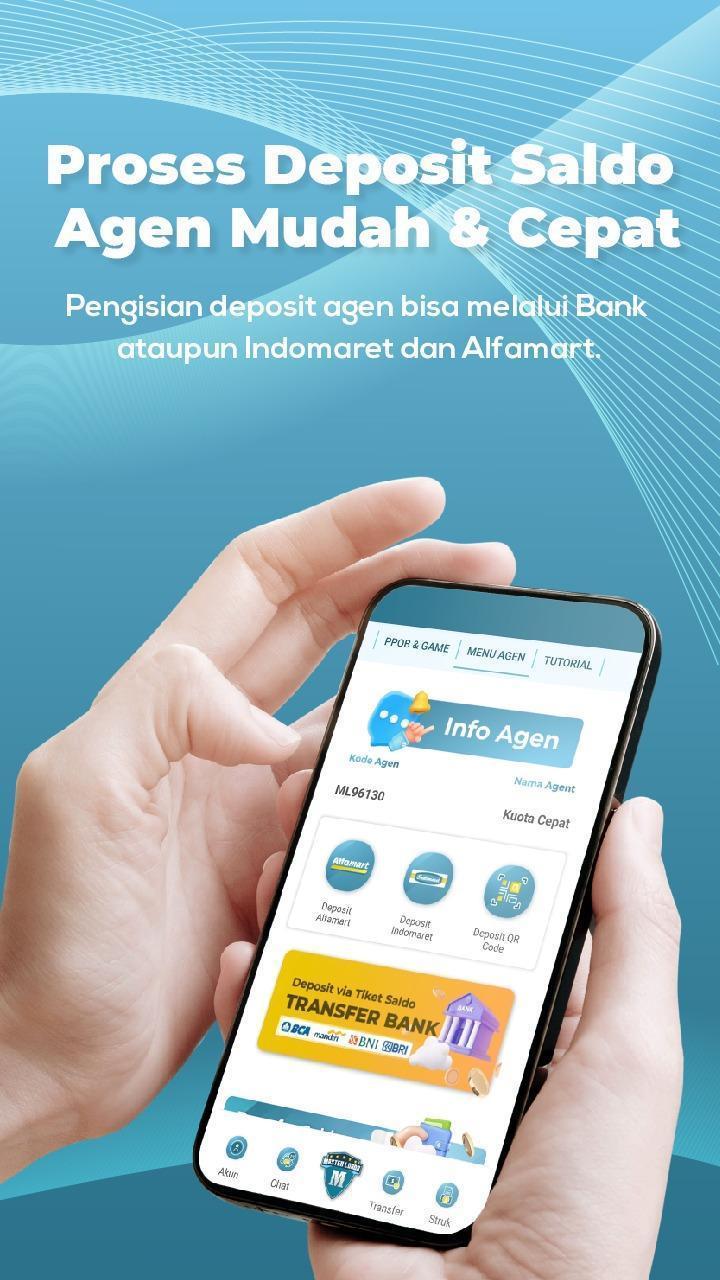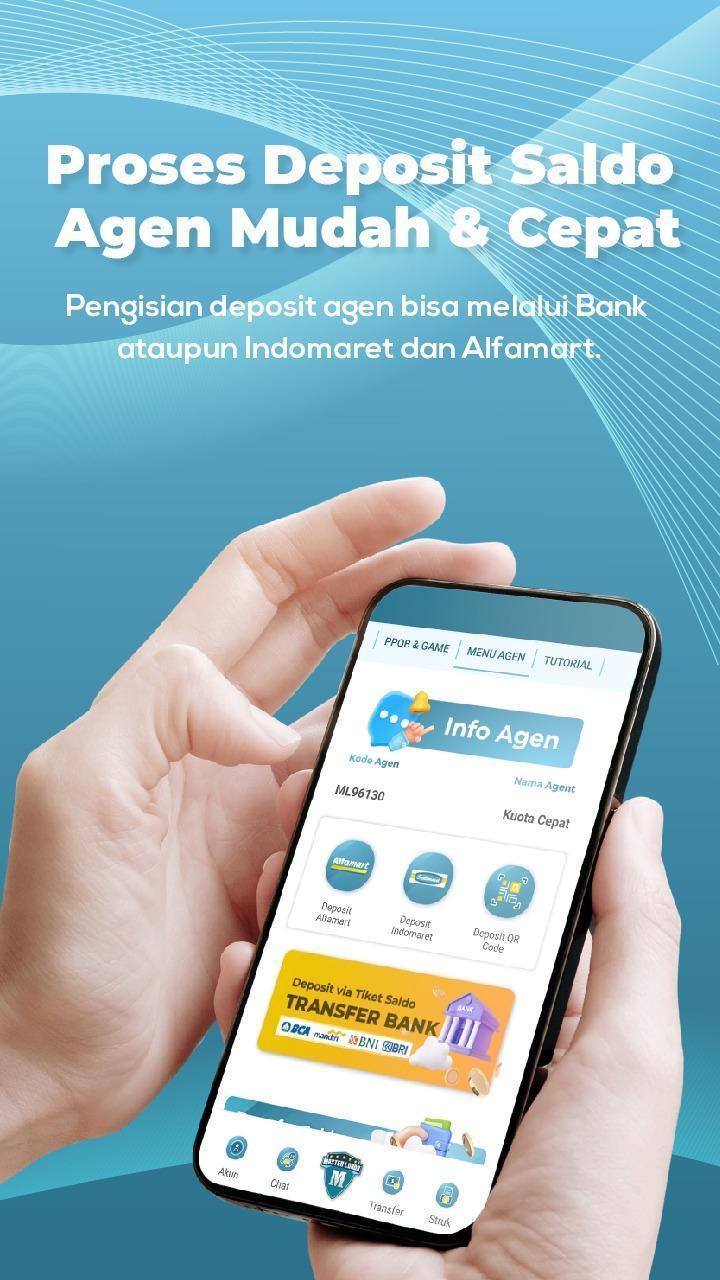Situs Togel Terpercaya dan Terbaik untuk Bermain Togel Online
Situs togel merupakam platform online yang menyediakan layanan perjudian dengan cara memasang taruhan pada angka-angka tertentu. Di situs togel, pemain dapat memilih nomor-nomor yang akan keluar pada hasil undian yang diumumkan setiap harinya. Meskipun terdapat kontroversi terkait legalitasnya, situs togel tetap diminati oleh banyak kalangan karena kemudahannya dalam bermain dan potensi keuntungan yang bisa didapatkan. Dengan perkembangan teknologi yang semakin canggih, situs togel pun semakin mudah diakses oleh masyarakat sehingga jumlah membernya terus bertambah setiap harinya.

Situs Togel Terpercaya dan Terbaik untuk Bermain Togel Online
Memilih situs togel terpercaya dan terbaik untuk bermain togel online adalah langkah penting bagi para pecinta togel. Dengan begitu, Anda dapat memastikan bahwa pengalaman bermain togel Anda berjalan lancar dan aman tanpa khawatir akan penipuan. Berikut adalah beberapa informasi terkait situs togel terpercaya dan terbaik yang dapat menjadi referensi Anda dalam bermain togel online.
### Keuntungan situs togel
#### Peningkatan keterampilan
Bermain togel secara online di situs terpercaya dapat membantu meningkatkan keterampilan Anda dalam menebak angka yang keluar. Anda dapat melatih intuisi dan analisis Anda setiap kali bermain togel online.
#### Konten edukatif
Sebagian besar situs togel terbaik juga menyediakan konten edukatif mengenai cara bermain togel yang benar, strategi yang efektif, dan tips untuk menang. Hal ini bisa menjadi sumber pengetahuan yang sangat berguna bagi pemain togel pemula maupun yang sudah berpengalaman.
#### Contoh
Sebagai contoh, situs togel XYZ menyediakan berbagai artikel edukatif mengenai strategi togel yang efektif dan ulasan mengenai hasil togel sebelumnya. Informasi ini bisa membantu pemain dalam membuat keputusan yang lebih baik saat bermain togel online.
### Strategi
#### Tips dan trik
Adalah penting untuk memiliki strategi dan tips yang jitu saat bermain togel online. Beberapa tips yang bisa membantu Anda adalah melakukan analisis angka, mengenal pola keluaran angka togel, dan memperhatikan hasil togel sebelumnya.
### Perbandingan dengan situs togel sejenisnya
#### Kelebihan
Salah satu kelebihan situs togel terbaik adalah kemudahan akses, kecepatan transaksi, keamanan data pribadi, dan pilihan permainan togel yang beragam. Semua ini dapat memberikan pengalaman bermain togel online yang lebih menyenangkan.
#### Pengalaman pengguna
Pengalaman pengguna yang baik juga menjadi faktor penting dalam memilih situs togel terbaik. Situs togel terpercaya biasanya menyediakan layanan pelanggan 24/7, tampilan situs yang user-friendly, dan transaksi yang cepat dan mudah.
### Panduan Memilih
#### Kriteria pemilihan
Beberapa kriteria yang perlu Anda pertimbangkan saat memilih situs togel terpercaya adalah lisensi resmi, reputasi yang baik, bonus dan promosi menarik, serta sistem keamanan yang ketat. Pastikan situs togel yang Anda pilih memenuhi semua kriteria tersebut.
#### Rekomendasi situs togel
Berikut adalah beberapa situs togel terpercaya dan terbaik yang direkomendasikan untuk Anda: situs togel A, situs togel B, dan situs togel C. Semua situs tersebut telah terbukti memberikan pengalaman bermain togel online yang aman dan menyenangkan.
Dengan memperhatikan beberapa informasi di atas, Anda dapat memilih situs togel terpercaya dan terbaik untuk bermain togel online. Pastikan untuk selalu bermain secara bertanggung jawab dan jangan lupa untuk menggunakan situs togel yang resmi dan terpercaya. Nikmati pengalaman bermain togel online yang menyenangkan dan untungkan!
### [situs togel](#)
1. Bagaimana cara memenangkan togel?
Jawaban: Togel adalah permainan berbasis keberuntungan, sehingga tidak ada strategi pasti untuk memenangkannya. Namun, ada beberapa tips yang bisa membantu seperti memilih angka favorit, mengikuti pola angka, dan menggunakan sistem taruhan.
2. Apakah togel online aman?
Jawaban: Sebagian besar situs togel online yang resmi dan terpercaya akan memiliki sistem keamanan yang ketat untuk melindungi data pribadi dan keuangan pemain. Pastikan untuk memilih situs yang memiliki lisensi resmi dan reputasi yang baik.
3. Bagaimana cara mendaftar di situs togel?
Jawaban: Untuk mendaftar di situs togel, biasanya Anda perlu membuat akun dengan menyertakan informasi pribadi seperti nama, alamat email, dan nomor telepon. Setelah itu, Anda bisa mengisi saldo akun Anda untuk mulai memasang taruhan.
4. Apakah ada trik khusus untuk memprediksi angka togel?
Jawaban: Togel adalah permainan acak, sehingga tidak ada trik khusus untuk memprediksi angka yang akan keluar. Namun, beberapa pemain menggunakan metode seperti melihat statistik angka sebelumnya atau menggunakan feeling untuk memilih angka.
5. Bagaimana cara menarik kemenangan dari situs togel?
Jawaban: Untuk menarik kemenangan dari situs togel, biasanya Anda perlu melakukan proses penarikan melalui metode pembayaran yang tersedia. Pastikan untuk memeriksa syarat dan ketentuan situs terkait proses penarikan kemenangan.
Memilih situs togel terpercaya dan terbaik sangat penting untuk memastikan pengalaman bermain togel online yang lancar dan aman. Dengan situs togel terpercaya, Anda dapat meningkatkan keterampilan bermain togel, mengakses konten edukatif, dan mendapatkan tips serta strategi yang efektif. Selain itu, perbandingan antara situs togel sejenis dan panduan memilih situs togel yang sesuai dengan kriteria yang tepat juga dapat membantu Anda dalam memilih situs togel terbaik.
Dengan rekomendasi situs togel terpercaya dan terbaik, seperti situs togel A, situs togel B, dan situs togel C, Anda dapat memiliki pengalaman bermain togel online yang aman, menyenangkan, dan menguntungkan. Pastikan untuk selalu bermain secara bertanggung jawab dan memilih situs togel yang memiliki lisensi resmi, reputasi baik, bonus menarik, dan sistem keamanan yang ketat. Dengan demikian, Anda dapat menikmati pengalaman bermain togel online yang lebih menghibur dan memuaskan.
Login Sbobet Rupiah: Cara Mudah Masuk dan Main di Agen Terpercaya
Sbobet adalah platform penyedia layanan judi online yang terkenal di seluruh dunia. Salah satu fitur yang ditawarkan oleh Sbobet adalah kemudahan untuk login menggunakan mata uang Rupiah. Hal ini memudahkan para pemain asal Indonesia untuk melakukan transaksi secara lebih mudah dan nyaman. Dengan adanya fitur login Sbobet Rupiah, para pemain dapat mengakses berbagai jenis permainan judi secara langsung tanpa harus menukar mata uang terlebih dahulu. Selain itu, pengguna juga dapat melakukan transaksi dengan lebih cepat dan efisien dalam memasang taruhan di berbagai jenis permainan yang disediakan oleh situs judi online terpercaya ini.

Login Sbobet Rupiah: Cara Mudah Masuk dan Main di Agen Terpercaya
Login sbobet rupiah menjadi salah satu cara terbaik untuk menikmati permainan judi online dengan menggunakan mata uang Rupiah. Dengan kemudahan akses dan berbagai keuntungan yang ditawarkan, tak heran jika semakin banyak orang memilih untuk bergabung di agen terpercaya ini. Bagi Anda yang masih bingung bagaimana cara login dan mulai bermain di Sbobet Rupiah, berikut adalah panduan lengkapnya.
Keuntungan Login Sbobet Rupiah
Ada beberapa keuntungan yang bisa Anda dapatkan ketika login dan bermain di Sbobet Rupiah. Salah satunya adalah peningkatan keterampilan bermain judi online. Dengan bermain secara rutin, Anda dapat mengasah kemampuan dan strategi bermain sehingga menjadi lebih terampil dalam memenangkan permainan.
Selain itu, Sbobet Rupiah juga menyediakan konten-konten edukatif yang dapat membantu Anda memahami lebih dalam tentang dunia judi online. Mulai dari tips dan trik bermain hingga panduan lengkap tentang berbagai jenis permainan yang tersedia.
Contoh, jika Anda adalah penggemar permainan slot online, Sbobet Rupiah menyediakan berbagai informasi terbaru tentang jenis-jenis slot terbaik dan cara memenangkannya. Dengan begitu, Anda dapat meningkatkan peluang kemenangan Anda.
Strategi
Bagi Anda yang ingin meningkatkan peluang kemenangan, Sbobet Rupiah juga memberikan tips dan trik bermain yang sangat berguna. Dengan memahami strategi bermain yang tepat, Anda dapat mengoptimalkan peluang kemenangan dan meraih keuntungan yang lebih besar.
Perbandingan dengan Sejenisnya
Apabila dibandingkan dengan agen judi online lainnya, Sbobet Rupiah memiliki beberapa kelebihan yang membuatnya lebih unggul. Salah satunya adalah pengalaman pengguna yang lebih baik. Dengan tampilan antarmuka yang user-friendly dan fitur-fitur yang lengkap, membuat pengalaman bermain Anda menjadi lebih menyenangkan.
Panduan Memilih
Untuk memilih agen judi online yang terpercaya, ada beberapa kriteria yang harus Anda pertimbangkan. Pastikan agen tersebut memiliki lisensi resmi, reputasi yang baik, dan menyediakan layanan pelanggan yang responsif. Berdasarkan kriteria-kriteria tersebut, Sbobet Rupiah merupakan salah satu agen terbaik yang bisa menjadi pilihan Anda.
Rekomendasi Login Sbobet Rupiah
Dengan segala keuntungan dan kemudahan yang ditawarkan, tidak ada alasan untuk tidak mencoba login dan bermain di Sbobet Rupiah. Dapatkan pengalaman bermain judi online yang seru dan menguntungkan hanya di agen terpercaya ini.
Kesimpulan
Dengan mengikuti panduan login Sbobet Rupiah di atas, Anda dapat mulai menikmati berbagai permainan judi online dengan mudah. Dengan berbagai keuntungan dan kemudahan yang ditawarkan, Sbobet Rupiah menjadi pilihan terbaik bagi Anda yang ingin merasakan sensasi bermain judi online dengan menggunakan mata uang Rupiah. Jadi, tunggu apalagi? Segera login dan raih kemenangan Anda sekarang juga!
Internal link: Login sbobet rupiah.
1. Bagaimana cara melakukan login di Sbobet dengan menggunakan rupiah?
Jawaban: Anda dapat login ke Sbobet menggunakan rupiah dengan mengakses situs resmi Sbobet, kemudian memasukkan username dan password yang telah didaftarkan. Selain itu, juga dapat menggunakan aplikasi mobile Sbobet untuk login.
2. Apakah ada biaya tambahan saat login menggunakan rupiah di Sbobet?
Jawaban: Tidak ada biaya tambahan saat login menggunakan rupiah di Sbobet. Namun, pastikan untuk memeriksa aturan dan kebijakan Sbobet terkait dengan transaksi keuangan.
3. Apa yang harus dilakukan jika lupa password saat login di Sbobet?
Jawaban: Jika lupa password saat login di Sbobet, Anda dapat menggunakan fitur “Lupa Password” yang disediakan oleh Sbobet. Ikuti langkah-langkah yang diberikan untuk mereset password Anda.
4. Bagaimana jika tidak bisa login dengan rupiah di Sbobet?
Jawaban: Jika mengalami masalah saat login dengan rupiah di Sbobet, pastikan untuk memeriksa koneksi internet Anda, memastikan bahwa username dan password yang dimasukkan benar, dan menghubungi layanan pelanggan Sbobet jika masalah terus berlanjut.
5. Apakah aman untuk login dengan rupiah di Sbobet?
Jawaban: Ya, login dengan rupiah di Sbobet aman asalkan Anda menggunakan situs resmi dan tidak memberikan informasi login kepada pihak lain. Selalu periksa keamanan akun Anda dan jangan menggunakan jaringan WiFi publik saat login ke akun Sbobet.
Login sbobet rupiah adalah cara terbaik untuk menikmati permainan judi online dengan menggunakan mata uang Rupiah. Dengan keuntungan peningkatan keterampilan bermain, konten edukatif yang disediakan, dan strategi bermain yang diberikan, Sbobet Rupiah menjadi pilihan terbaik untuk para pemain judi online. Agen ini juga unggul dalam pengalaman pengguna, lisensi resmi, reputasi yang baik, dan layanan pelanggan responsif. Dengan mengikuti panduan login Sbobet Rupiah, pemain dapat mulai menikmati permainan judi online dengan mudah dan meraih keuntungan yang lebih besar.
Login sbobet rupiah memungkinkan pemain untuk menikmati permainan judi online menggunakan mata uang Rupiah dengan kenyamanan dan keuntungan yang ditawarkan. Panduan memilih agen terpercaya seperti Sbobet Rupiah, dengan kriteria lisensi resmi, reputasi baik, dan layanan pelanggan yang responsif menjadikannya pilihan terbaik. Dengan akses mudah, pengalaman bermain yang menyenangkan, dan keuntungan yang menggiurkan, pemain dapat segera login dan merasakan sensasi bermain judi online dengan Sbobet Rupiah sekarang juga.
Akun Jackpot XL: Cara Mudah Menang Besar di Situs Judi Online
Akun Jackpot XL merupakan salah satu jenis akun khusus yang ditawarkan oleh situs judi online untuk memberikan kesempatan kepada para pemain untuk memenangkan hadiah jackpot dalam jumlah besar. Dengan bermain di akun ini, para pemain memiliki kesempatan untuk meraih kemenangan yang jauh lebih besar daripada akun biasa. Jackpot XL biasanya disediakan dalam permainan tertentu dengan aturan yang berbeda, sehingga meningkatkan tingkat keseruan bagi para pemain. Bagi para penggemar judi online, memiliki akun Jackpot XL tentu menjadi salah satu pilihan terbaik untuk mengejar kesempatan meraih hadiah besar dalam permainan.

Akun Jackpot XL: Cara Mudah Menang Besar di Situs Judi Online
Akun Jackpot XL merupakan salah satu fitur menarik yang bisa memperbesar peluang Anda untuk mendapatkan kemenangan besar di situs judi online. Dengan akun ini, Anda bisa meningkatkan keterampilan bermain, mendapatkan konten edukatif, dan strategi yang tepat untuk memenangkan permainan.
Keuntungan Akun Jackpot XL
Peningkatan Keterampilan
Dengan Akun Jackpot XL, Anda akan mendapatkan berbagai informasi dan tips terbaru yang bisa membantu meningkatkan keterampilan bermain Anda. Anda bisa belajar dari pengalaman pemain lain dan mendapatkan wawasan baru tentang strategi permainan yang efektif.
Konten Edukatif
Akun Jackpot XL juga menyediakan konten edukatif yang bermanfaat bagi pemain. Anda bisa membaca artikel, menonton video, atau mendengarkan podcast tentang cara bermain yang baik, tips dan trik, serta berbagai informasi menarik lainnya.
Contoh
Contoh dari keuntungan Akun Jackpot XL adalah adanya panduan langkah demi langkah untuk bermain game tertentu, ulasan strategi dari para ahli, dan tips untuk meningkatkan peluang menang.
Strategi
Tips dan Trik
Salah satu strategi yang bisa Anda pelajari melalui Akun Jackpot XL adalah tips dan trik bermain yang dapat meningkatkan peluang kemenangan Anda. Dengan memahami strategi ini, Anda dapat mengoptimalkan permainan Anda dan meraih kemenangan yang lebih besar.
Perbandingan dengan Sejenisnya
Kelebihan
Kelebihan Akun Jackpot XL dibandingkan dengan fitur sejenisnya adalah kualitas konten yang disediakan, kesempatan untuk berinteraksi langsung dengan pemain lain, dan jaminan keamanan data pribadi Anda.
Pengalaman Pengguna
Banyak pengguna Akun Jackpot XL yang memberikan testimoni positif mengenai pengalaman mereka menggunakan fitur ini. Mereka menyebutkan bahwa Akun Jackpot XL membantu mereka memenangkan permainan dan meraih hadiah besar.
Panduan Memilih
Kriteria Pemilihan
Untuk memilih Akun Jackpot XL yang terbaik, Anda perlu memperhatikan kriteria seperti reputasi penyedia, kualitas konten yang disediakan, dan testimonial dari pengguna lain. Pastikan juga untuk memilih yang sesuai dengan kebutuhan dan preferensi Anda.
Rekomendasi Akun Jackpot XL
Jika Anda mencari rekomendasi Akun Jackpot XL terbaik, kami merekomendasikan untuk memilih yang memiliki reputasi baik, konten edukatif yang berkualitas, dan dukungan pelanggan yang responsif.
Kesimpulan
Dengan memanfaatkan Akun Jackpot XL, Anda dapat meningkatkan keterampilan bermain, mendapatkan strategi yang tepat, dan mengoptimalkan peluang kemenangan Anda di situs judi online. Jangan ragu untuk mencoba fitur ini dan rasakan sendiri manfaatnya dalam meraih kemenangan besar!
Akun Jackpot XL
1. Apa itu Akun Jackpot XL?
Akun Jackpot XL adalah akun premium di situs permainan online yang memberikan akses ke jackpot besar dan beragam fitur eksklusif.
2. Bagaimana cara mendapatkan Akun Jackpot XL?
Anda bisa mendapatkan Akun Jackpot XL dengan membelinya melalui situs resmi permainan online atau melalui program loyalitas yang ditawarkan oleh situs tersebut.
3. Apa keuntungan memiliki Akun Jackpot XL?
Keuntungan memiliki Akun Jackpot XL antara lain akses ke jackpot besar, fitur eksklusif seperti bonus tambahan, dan dukungan pelanggan yang lebih prioritas.
4. Berapa harga Akun Jackpot XL?
Harga Akun Jackpot XL bervariasi tergantung pada situs permainan online tertentu. Harganya bisa berkisar mulai dari beberapa puluh hingga ratusan dolar per bulan.
5. Apa perbedaan antara Akun Jackpot XL dan akun reguler?
Perbedaan utama antara Akun Jackpot XL dan akun reguler adalah akses ke jackpot besar dan fitur eksklusif yang hanya tersedia untuk pemegang Akun Jackpot XL.
Akun Jackpot XL adalah fitur menarik di situs judi online yang dapat membantu Anda memperbesar peluang kemenangan besar. Dengan akun ini, Anda dapat meningkatkan keterampilan bermain dan memperoleh konten edukatif serta strategi yang berharga untuk meraih kemenangan. Melalui akun ini, Anda juga dapat belajar tips dan trik, mengoptimalkan permainan, dan memilih provider yang terbaik sesuai dengan kebutuhan Anda. Dengan demikian, Akun Jackpot XL adalah pilihan yang dapat membantu Anda meraih kesuksesan dalam bermain judi online.
Situs Casino Uang Asli Terbaik untuk Bermain Judi Online
Saat ini, perkembangan teknologi telah membawa perjudian ke level yang lebih tinggi dengan adanya situs casino uang asli. Situs ini memberikan pengalaman berjudi yang nyata dengan menggunakan uang sungguhan, sehingga banyak pemain merasa lebih tertarik untuk mencoba keberuntungan mereka. Dengan adanya berbagai macam permainan casino yang tersedia, pemain dapat memilih dan menikmati game favorit mereka tanpa harus pergi ke tempat casino fisik. Selain itu, situs casino uang asli juga memberikan kemudahan aksesibilitas bagi para pemain untuk bermain kapan saja dan di mana saja. Hal ini membuat situs casino uang asli semakin populer di kalangan penjudi online.

Situs Casino uang asli adalah tempat yang tepat bagi para penggemar judi online untuk menikmati berbagai permainan kasino favorit mereka dengan menggunakan uang sungguhan. Dengan kemajuan teknologi, situs-situs ini menawarkan pengalaman berjudi yang seru dan menarik dengan fitur-fitur modern yang memudahkan para pemain.
## Keuntungan situs Casino uang asli
### Peningkatan keterampilan
Bermain di situs Casino uang asli dapat membantu meningkatkan keterampilan berjudi Anda. Dengan bermain secara reguler, Anda dapat mengasah kemampuan analisis dan strategi Anda sehingga dapat menjadi pemain yang lebih baik.
### Konten edukatif
Situs Casino uang asli juga sering menyediakan konten edukatif tentang berbagai permainan kasino, seperti panduan dan strategi bermain. Hal ini dapat membantu para pemain, terutama pemula, untuk memahami aturan permainan dan meningkatkan peluang menang.
### Contoh
Sebagai contoh, situs Casino uang asli terbaik biasanya menyediakan berbagai permainan populer seperti poker, blackjack, roulette, dan slot online. Dengan berbagai pilihan permainan yang ditawarkan, para pemain memiliki banyak opsi untuk memilih permainan sesuai dengan minat dan keahlian mereka.
## Strategi
### Tips dan trik
Untuk meningkatkan peluang menang, para pemain dapat mempelajari berbagai tips dan trik dalam bermain judi online. Misalnya, mengelola modal dengan bijak, memahami aturan permainan, dan mengetahui kapan harus berhenti bermain.
## Perbandingan dengan sejenisnya
### Kelebihan
Situs Casino uang asli memiliki keunggulan dibandingkan dengan situs judi online lainnya karena menawarkan pengalaman berjudi yang lebih nyata dan memuaskan. Dengan menggunakan uang sungguhan, para pemain dapat merasakan sensasi sebenarnya bermain kasino.
### Pengalaman pengguna
Pengalaman pengguna yang baik juga menjadi salah satu kelebihan situs Casino uang asli terbaik. Dengan tampilan yang menarik, antarmuka yang ramah pengguna, dan layanan pelanggan yang responsif, para pemain dapat menikmati berjudi secara online tanpa hambatan.
## Panduan Memilih
### Kriteria pemilihan
Ketika memilih situs Casino uang asli untuk bermain, penting untuk memperhatikan kriteria seperti keamanan transaksi, reputasi situs, jenis permainan yang ditawarkan, bonus dan promosi yang tersedia, serta kualitas layanan pelanggan.
### Rekomendasi situs Casino uang asli
Beberapa situs Casino uang asli terbaik yang dapat Anda pertimbangkan adalah situs A, situs B, dan situs C. Situs-situs ini terkenal dengan reputasi yang baik, beragam pilihan permainan, bonus yang menarik, dan layanan pelanggan yang memuaskan.
Dengan demikian, situs Casino uang asli adalah tempat yang tepat bagi para penggemar judi online yang ingin merasakan sensasi bermain kasino dengan uang sungguhan. Dengan mengikuti tips dan trik yang tepat, serta memilih situs yang handal, Anda dapat menikmati pengalaman berjudi online yang seru dan menguntungkan. Jadi, segera temukan situs Casino uang asli terbaik dan mulailah petualangan judi online Anda sekarang juga.
Internal Link : situs Casino uang asli
1. Bagaimana cara mendaftar di situs Casino uang asli?
– Kunjungi situs web resmi casino tersebut dan cari tombol “Daftar” atau “Sign Up”.
– Isi formulir pendaftaran dengan informasi pribadi yang diperlukan.
– Pastikan untuk memverifikasi akun Anda melalui email atau SMS.
2. Bagaimana cara melakukan deposit di situs Casino uang asli?
– Pilih opsi deposit yang tersedia di situs tersebut, seperti transfer bank atau e-wallet.
– Masukkan jumlah yang ingin Anda depositkan dan ikuti instruksi pembayaran yang diberikan.
– Pastikan untuk memeriksa batas deposit minimum dan waktu pemrosesan yang diperlukan.
3. Apakah situs Casino uang asli ini aman?
– Pastikan situs tersebut memiliki lisensi resmi dari otoritas perjudian yang sah.
– Periksa keamanan situs dengan memastikan adanya enkripsi data dan fitur keamanan lainnya.
– Baca ulasan dan reputasi situs tersebut dari pemain lain sebelum memutuskan untuk bermain di sana.
4. Apa jenis permainan yang tersedia di situs Casino uang asli ini?
– Biasanya, situs casino uang asli menyediakan berbagai jenis permainan seperti slot, blackjack, roulette, dan poker.
– Beberapa situs juga menawarkan permainan live dealer untuk pengalaman bermain yang lebih interaktif.
– Pastikan untuk memeriksa opsi permainan yang tersedia sebelum mulai bermain.
5. Bagaimana cara menarik kemenangan dari situs Casino uang asli?
– Pilih opsi penarikan yang tersedia di situs tersebut, seperti transfer bank atau e-wallet.
– Masukkan jumlah yang ingin Anda tarik dan ikuti instruksi penarikan yang diberikan.
– Periksa batas penarikan minimum dan waktu pemrosesan yang mungkin diperlukan sebelum dana masuk ke rekening Anda.
Situs Casino uang asli merupakan tempat yang ideal bagi para penggemar judi online untuk menikmati berbagai permainan kasino dengan uang sungguhan. Dengan fitur-fitur modern dan konten edukatif, situs-situs ini dapat membantu meningkatkan keterampilan berjudi para pemain dan memberikan pengalaman berjudi yang seru. Para pemain juga dapat memanfaatkan tips dan trik untuk meningkatkan peluang menang, serta memilih situs yang handal berdasarkan kriteria tertentu seperti keamanan transaksi, reputasi, jenis permainan, bonus, dan layanan pelanggan.
Dengan memilih situs Casino uang asli yang tepat, para pemain dapat menikmati pengalaman berjudi online yang nyata dan memuaskan. Dengan berbagai pilihan permainan populer dan pengalaman pengguna yang baik, para pemain dapat merasakan sensasi bermain kasino dengan uang sungguhan secara online. Dengan demikian, situs Casino uang asli memungkinkan para pemain untuk memiliki petualangan judi online yang seru dan menguntungkan.
Situs Togel BRI Terpercaya
Perjudian togel online atau yang lebih dikenal dengan istilah Toto Gelap telah menjadi salah satu permainan yang populer di kalangan masyarakat Indonesia. Banyak situs togel yang menyediakan layanan tersebut, salah satunya adalah situs togel BRI. Situs togel BRI ini merupakan salah satu platform perjudian online yang terpercaya dan memiliki banyak pengguna. Dengan kemudahan akses melalui bank BRI, situs togel BRI ini memberikan pilihan yang lebih luas bagi para pemain togel untuk bermain dan melakukan transaksi dengan mudah dan aman.

Situs Togel BRI Terpercaya
Situs togel BRI merupakan salah satu platform perjudian online yang dapat diakses oleh pemain di seluruh Indonesia. Dengan menggunakan layanan dari Bank BRI, pemain dapat melakukan transaksi dengan mudah dan aman.
Keuntungan Situs Togel BRI
Peningkatan Keterampilan
Situs togel BRI menyediakan berbagai permainan yang dapat membantu pemain dalam mengembangkan keterampilan analisis dan prediksi angka. Dengan bermain secara rutin, pemain dapat meningkatkan kemampuan dalam memprediksi angka-angka yang akan keluar.
Konten Edukatif
Situs togel BRI juga menyediakan konten edukatif tentang strategi dan tips untuk memenangkan permainan togel. Informasi-informasi ini dapat membantu pemain dalam meningkatkan peluang menang.
Contoh
Sebagai contoh, situs togel BRI memberikan statistik hasil keluaran angka togel sebelumnya, sehingga pemain dapat menganalisis pola angka yang sering keluar dan memprediksi angka-angka yang akan keluar berikutnya.
Strategi
Tips dan Trik
Untuk meningkatkan peluang menang, pemain dapat menggunakan berbagai tips dan trik yang tersedia di situs togel BRI. Misalnya, pemain dapat menggunakan variasi taruhan untuk meningkatkan peluang mendapatkan hadiah yang lebih besar.
Perbandingan dengan Sejenisnya
Kelebihan
Situs togel BRI memiliki kelebihan dibandingkan dengan situs perjudian togel lainnya, yaitu kemudahan dalam melakukan transaksi melalui Bank BRI, keamanan data pemain, dan layanan pelanggan yang responsif.
Pengalaman Pengguna
Berbagai testimonial dari pemain yang telah menggunakan situs togel BRI menggambarkan pengalaman positif mereka dalam bermain dan melakukan transaksi di situs ini.
Panduan Memilih
Kriteria Pemilihan
Untuk memilih situs togel BRI terpercaya, pemain perlu memperhatikan kriteria-kriteria seperti reputasi situs, keamanan transaksi, layanan pelanggan, dan koleksi permainan yang ditawarkan.
Rekomendasi Situs Togel BRI
Situs togel BRI merupakan pilihan terbaik untuk pemain yang mencari pengalaman bermain togel yang aman, nyaman, dan terpercaya.
Trend Terbaru tentang Situs Togel BRI
Salah satu tren terbaru tentang situs togel BRI adalah penggunaan teknologi kecerdasan buatan dalam memprediksi angka-angka togel yang akan keluar. Hal ini membantu pemain dalam meningkatkan peluang menang dalam bermain togel online.
Kesimpulan
Memilih situs togel BRI terpercaya adalah langkah penting bagi pemain yang ingin merasakan pengalaman bermain togel secara online dengan aman dan nyaman. Dengan berbagai keuntungan dan strategi yang ditawarkan, situs togel BRI menjadi pilihan terbaik bagi para penggemar togel di Indonesia.
1. Bagaimana cara mendaftar sebagai member di situs togel BRI?
Jawaban: Anda bisa mendaftar sebagai member dengan mengisi formulir pendaftaran yang tersedia di situs togel BRI, kemudian melakukan deposit minimal yang ditentukan.
2. Apa saja metode pembayaran yang bisa digunakan untuk deposit dan withdraw di situs togel BRI?
Jawaban: Metode pembayaran yang bisa digunakan di situs togel BRI antara lain transfer bank, e-wallet, dan kartu kredit.
3. Berapa minimal deposit yang harus dilakukan di situs togel BRI?
Jawaban: Minimal deposit yang harus dilakukan di situs togel BRI adalah Rp 50.000.
4. Apa saja jenis permainan togel yang tersedia di situs togel BRI?
Jawaban: Beberapa jenis permainan togel yang tersedia di situs togel BRI antara lain togel Singapore, togel Hongkong, dan togel Sydney.
5. Bagaimana cara menghubungi customer service di situs togel BRI jika mengalami masalah?
Jawaban: Anda bisa menghubungi customer service di situs togel BRI melalui live chat yang tersedia di situs tersebut, atau melalui nomor kontak yang tertera.
Situs togel BRI adalah platform perjudian online yang menyediakan layanan transaksi melalui Bank BRI, memungkinkan pemain di Indonesia untuk bermain dengan mudah dan aman. Situs ini memberikan keuntungan seperti peningkatan keterampilan dalam menebak angka, konten edukatif tentang strategi, tips, dan statistik hasil keluaran angka togel sebelumnya. Selain itu, situs togel BRI juga memiliki kelebihan seperti kemudahan transaksi, keamanan data pemain, dan layanan pelanggan responsif. Dengan tren terbaru menggunakan teknologi kecerdasan buatan, situs togel BRI memberikan pengalaman bermain togel online yang aman, nyaman, dan terpercaya bagi para penggemar togel.
Situs Depo 10K OVO Terpercaya dan Mudah Diakses
Situs depo 10k OVO merupakan salah satu platform online yang menyediakan layanan deposit dengan nominal minimal 10 ribu rupiah melalui aplikasi OVO. Dengan kemudahan transaksi ini, pengguna dapat melakukan pengisian saldo dengan mudah dan cepat tanpa perlu repot mencari mesin ATM atau gerai fisik lainnya. Selain itu, situs depo 10k OVO juga menyediakan berbagai bonus dan promo menarik bagi pengguna setia sehingga semakin menarik untuk digunakan. Dengan adanya layanan ini, diharapkan dapat memudahkan masyarakat dalam melakukan pembayaran secara digital dan mengurangi penggunaan uang tunai.

Situs Depo 10K OVO Terpercaya dan Mudah Diakses
Situs depo 10k OVO merupakan salah satu platform judi online yang sedang populer saat ini. Dengan minimnya jumlah deposit yang harus dilakukan, situs ini menjadi pilihan yang tepat bagi para pemain judi online. Selain itu, situs depo 10k OVO juga terpercaya dan mudah diakses, sehingga membuat pengalaman bermain judi Anda menjadi lebih menyenangkan.
Keuntungan Situs Depo 10K OVO
Peningkatan Keterampilan
Dengan bergabung di situs depo 10k OVO, Anda akan mendapatkan kesempatan untuk meningkatkan keterampilan bermain judi Anda. Dengan banyaknya permainan yang ditawarkan, Anda dapat mencoba berbagai strategi dan teknik bermain untuk meraih kemenangan.
Konten Edukatif
Situs depo 10k OVO juga menyediakan konten edukatif mengenai judi online. Anda dapat mempelajari berbagai tips dan trik untuk meningkatkan peluang kemenangan Anda, serta memahami aturan dan strategi bermain yang efektif.
Contoh
Situs depo 10k OVO memberikan pengalaman bermain yang menyenangkan dan interaktif. Anda dapat bermain dengan pemain lain dari berbagai belahan dunia, sehingga Anda dapat belajar dari pengalaman bermain mereka.
Strategi
Tips dan Trik
Untuk meningkatkan peluang kemenangan Anda, ada beberapa tips dan trik yang dapat Anda terapkan saat bermain di situs depo 10k OVO. Salah satunya adalah melakukan riset terlebih dahulu mengenai permainan yang akan Anda mainkan, serta mengelola modal dengan bijak.
Perbandingan dengan Sejenisnya
Kelebihan
Situs depo 10k OVO memiliki kelebihan dibandingkan dengan situs judi online lainnya, yaitu minimnya jumlah deposit yang harus dilakukan. Selain itu, situs ini juga terpercaya dan mudah diakses, sehingga membuat pengalaman bermain Anda menjadi lebih menyenangkan.
Pengalaman Pengguna
Berdasarkan pengalaman pengguna yang sudah bergabung di situs depo 10k OVO, banyak dari mereka merasa puas dengan pelayanan yang diberikan. Proses deposit dan penarikan dana berjalan lancar, serta layanan pelanggan yang responsif.
Panduan Memilih
Kriteria Pemilihan
Untuk memilih situs depo 10k OVO yang terpercaya, Anda perlu memperhatikan beberapa kriteria, seperti lisensi resmi, reputasi, dan jenis permainan yang ditawarkan. Pastikan untuk memilih situs yang memenuhi kriteria tersebut agar pengalaman bermain Anda lebih terjamin.
Rekomendasi Situs Depo 10K OVO
Salah satu rekomendasi situs depo 10k OVO terpercaya dan mudah diakses adalah situs depo 10k ovo. Dengan layanan yang prima dan beragam permainan menarik, situs ini menjadi pilihan yang tepat bagi para pecinta judi online.
Kesimpulan
Sebagai penggemar judi online, memilih situs depo 10k OVO terpercaya dan mudah diakses merupakan hal yang penting. Dengan mengetahui keuntungan, strategi, perbandingan dengan sejenisnya, serta panduan memilih situs depo 10k OVO, Anda dapat menikmati pengalaman bermain judi online yang lebih menyenangkan.
1. Bagaimana cara melakukan deposit 10k dengan OVO?
– Buka aplikasi OVO
– Pilih menu Deposit
– Pilih jumlah deposit
– Ikuti instruksi untuk menyelesaikan transaksi
2. Berapa lama waktu yang diperlukan untuk proses deposit 10k dengan OVO?
– Proses deposit biasanya instan atau bisa memakan waktu beberapa menit
3. Apakah ada biaya tambahan yang harus dibayarkan saat melakukan deposit 10k dengan OVO?
– Biaya tambahan mungkin berlaku tergantung dari kebijakan situs atau layanan OVO
4. Apa batasan deposit minimal dan maksimal saat menggunakan OVO?
– Biasanya batas minimal deposit adalah 10.000 dan maksimal sesuai dengan kebijakan situs atau layanan OVO
5. Apakah proses deposit menggunakan OVO aman?
– Ya, OVO dilengkapi dengan sistem keamanan yang canggih untuk melindungi informasi pengguna
Situs depo 10k OVO merupakan platform judi online populer dengan minimnya jumlah deposit, terpercaya, dan mudah diakses. Menyediakan kesempatan untuk meningkatkan keterampilan bermain judi dengan konten edukatif, pengalaman interaktif, serta tips dan trik. Kelebihan situs ini adalah minim deposit, kepuasan pengguna, dan layanan pelanggan responsif. Memilih situs depo 10k OVO yang terpercaya dengan kriteria pemilihan yang tepat akan memberikan pengalaman bermain judi online yang lebih menyenangkan.
Situs Jackpot Dipercaya: Tempat Terbaik untuk Menang Besar
Situs Jackpot Dipercaya merupakan platform perjudian online yang telah dikenal luas dan dipercaya oleh para pemain di seluruh dunia. Dengan berbagai jenis permainan yang ditawarkan, seperti slot, poker, dan live casino, situs ini menawarkan kesempatan bagi para pemain untuk memenangkan jackpot besar dengan modal yang relatif kecil. Keamanan dan keadilan dalam bermain juga menjadi prioritas utama bagi situs ini, sehingga para pemain dapat merasa nyaman dan tenang dalam menikmati permainan. Dengan reputasi yang baik dan layanan pelanggan yang responsif, Situs Jackpot Dipercaya telah menjadi pilihan utama bagi para penggemar judi online.

Situs Jackpot Dipercaya: Tempat Terbaik untuk Menang Besar
Situs Jackpot Dipercaya merupakan tempat terbaik bagi Anda yang ingin mencari kesempatan untuk memenangkan hadiah besar dalam permainan judi online. Dengan reputasi yang baik dan sistem yang fair, situs ini menjadi pilihan yang tepat bagi para penjudi online. Bermain di situs Jackpot Dipercaya bukan hanya tentang kesenangan semata, tetapi juga menguntungkan.
Keuntungan Situs Jackpot Dipercaya
Peningkatan Keterampilan
Salah satu keuntungan utama bermain di situs Jackpot Dipercaya adalah peningkatan keterampilan dalam bermain judi online. Dengan adanya berbagai jenis permainan yang ditawarkan, Anda dapat mengasah kemampuan dan strategi bermain Anda.
Konten Edukatif
Situs Jackpot Dipercaya juga menyediakan konten edukatif yang bermanfaat bagi para pemain. Dengan adanya artikel dan panduan-panduan berguna, Anda dapat memperluas pengetahuan Anda tentang dunia judi online.
Contoh
Sebagai contoh, situs Jackpot Dipercaya menyediakan informasi mengenai cara bermain poker yang baik dan benar. Dengan membaca artikel-artikel tersebut, Anda dapat meningkatkan kemampuan bermain Anda dan memiliki peluang yang lebih besar untuk memenangkan hadiah.
Strategi
Tips dan Trik
Untuk mendapatkan kemenangan besar di situs Jackpot Dipercaya, diperlukan strategi yang matang. Berbagai tips dan trik bisa Anda dapatkan dari situs ini untuk membantu Anda meraih kemenangan yang diinginkan.
Perbandingan dengan Sejenisnya
Kelebihan
Salah satu kelebihan situs Jackpot Dipercaya dibandingkan dengan situs sejenisnya adalah pengalaman pengguna yang memuaskan. Dengan sistem yang transparan dan customer service yang responsif, pengguna merasa nyaman bermain di situs ini.
Pengalaman Pengguna
Pengalaman pengguna yang positif juga menjadi faktor utama mengapa situs Jackpot Dipercaya difavoritkan oleh para penjudi online. Dengan proses transaksi yang cepat dan aman, pengguna tidak perlu khawatir tentang keamanan dan keselamatan data pribadi mereka.
Panduan Memilih
Kriteria Pemilihan
Ketika memilih situs judi online, ada beberapa kriteria yang harus dipertimbangkan. Keamanan, reputasi, dan bonus yang ditawarkan adalah beberapa hal yang perlu diperhatikan sebelum memutuskan untuk bergabung dengan suatu situs.
Rekomendasi Situs Jackpot Dipercaya
Dengan segala kelebihan yang dimiliki, situs Jackpot Dipercaya bisa menjadi pilihan terbaik untuk Anda yang ingin mencoba peruntungan dalam bermain judi online. Dengan reputasi yang baik dan berbagai jenis permainan menarik, situs ini menawarkan pengalaman bermain yang tak terlupakan.
Kesimpulan
Dengan berbagai keuntungan dan kelebihan yang dimilikinya, situs Jackpot Dipercaya menjadi tempat terbaik untuk menang besar dalam permainan judi online. Dengan strategi yang tepat dan panduan yang diberikan, Anda bisa memperoleh kemenangan dan hadiah besar. Jadi, tunggu apalagi? Bergabunglah sekarang juga di situs Jackpot Dipercaya dan raih kesuksesan Anda dalam dunia judi online. situs Jackpot Dipercaya.
1. Bagaimana cara mendaftar di situs Jackpot Dipercaya?
– Kunjungi situs resmi Jackpot Dipercaya
– Klik tombol ‘Daftar’ atau ‘Sign Up’
– Isi formulir pendaftaran yang disediakan dengan data diri yang valid
– Verifikasi akun melalui email atau SMS
2. Apa jenis permainan yang tersedia di situs Jackpot Dipercaya?
– Slot online
– Live casino games
– Taruhan olahraga
– Poker online
3. Bagaimana cara melakukan deposit di situs Jackpot Dipercaya?
– Login ke akun anda
– Pilih metode pembayaran yang diinginkan (transfer bank, e-wallet, kartu prabayar, dll)
– Masukkan jumlah yang ingin di deposit
– Konfirmasi transaksi
4. Apakah situs Jackpot Dipercaya menawarkan bonus untuk member baru?
– Ya, biasanya situs ini menawarkan bonus selamat datang kepada member baru
– Bonus bisa berupa bonus deposit, free spin, atau promosi lainnya
– Syarat dan ketentuan berlaku untuk setiap jenis bonus
5. Bagaimana sistem keamanan yang diterapkan oleh situs Jackpot Dipercaya?
– Penggunaan teknologi enkripsi data untuk melindungi informasi pribadi
– Sistem keamanan tingkat tinggi untuk melindungi transaksi keuangan
– Penggunaan firewall dan anti-virus untuk mencegah serangan malware
6. Apakah situs Jackpot Dipercaya memiliki layanan pelanggan 24/7?
– Iya, biasanya situs ini menyediakan layanan pelanggan yang siap membantu 24 jam sehari, 7 hari seminggu
– Dapat dihubungi melalui live chat, email, atau telepon
– Respon cepat untuk setiap pertanyaan atau masalah yang dihadapi oleh member.
Situs Jackpot Dipercaya adalah tempat terbaik bagi para penjudi online yang ingin mencari kesempatan untuk memenangkan hadiah besar. Dengan reputasi yang baik, peningkatan keterampilan bermain, konten edukatif, tips dan trik, serta pengalaman pengguna yang positif, situs ini memberikan pengalaman bermain yang memuaskan. Memilih situs Jackpot Dipercaya juga menjadi pilihan terbaik karena keamanan, reputasi, bonus yang ditawarkan, dan pengalaman pengguna yang baik. Bergabunglah sekarang dan raih kesuksesan dalam dunia judi online di situs Jackpot Dipercaya.
Dengan berbagai keuntungan, kelebihan, dan panduan yang diberikan, situs Jackpot Dipercaya menjadi tempat terbaik untuk menang besar dalam permainan judi online. Dengan sistem yang fair, strategi yang tepat, dan rekomendasi situs yang baik, para pemain bisa memperoleh kemenangan dan hadiah besar. Bergabunglah sekarang di situs Jackpot Dipercaya dan nikmati pengalaman bermain yang tak terlupakan dalam dunia judi online.
Situs Habanero Dipercaya: Pilihan Terbaik untuk Penggemar Judi Online
Dalam era digital seperti sekarang ini, situs judi online semakin menjamur dan menjadi pilihan banyak orang untuk mencari hiburan serta kesempatan meraih keuntungan. Salah satu situs judi online yang kini semakin populer adalah situs Habanero Dipercaya. Situs ini dikenal sebagai tempat yang terpercaya untuk bermain beragam permainan judi online, mulai dari slot online hingga permainan kartu tradisional. Keamanan dan kenyamanan pemain menjadi prioritas utama situs ini, dengan menyediakan sistem keamanan yang canggih dan layanan pelanggan yang ramah serta responsif. Dengan reputasi yang baik, situs Habanero Dipercaya menjadi pilihan yang tepat bagi para penggemar judi online.

Situs Habanero Dipercaya: Pilihan Terbaik untuk Penggemar Judi Online
Keuntungan situs habanero Dipercaya
Peningkatan keterampilan
Situs Habanero Dipercaya menyediakan berbagai permainan judi online yang dapat membantu meningkatkan keterampilan pemain. Dengan berbagai pilihan permainan yang menarik, pemain dapat terus mengasah kemampuan mereka dan menjadi lebih baik dalam bertaruh.
Konten edukatif
Salah satu keuntungan utama situs ini adalah menyediakan konten edukatif tentang berbagai strategi dan tips untuk meningkatkan peluang menang. Dengan mengakses konten ini, pemain dapat memperoleh pengetahuan yang berharga yang dapat mereka terapkan dalam permainan.
Contoh
Sebagai contoh, situs Habanero Dipercaya menyediakan panduan langkah demi langkah tentang cara bermain poker untuk pemula. Dengan mengikuti panduan ini, pemain dapat memahami aturan permainan dan strategi yang efektif untuk memenangkan taruhan.
Strategi
Tips dan trik
Situs Habanero Dipercaya juga memberikan tips dan trik yang berguna untuk membantu pemain meraih kemenangan. Dari strategi taruhan hingga manajemen bankroll, pemain dapat memperoleh wawasan berharga yang dapat meningkatkan hasil permainan mereka.
Perbandingan dengan sejenisnya
Kelebihan
Salah satu kelebihan utama situs Habanero Dipercaya adalah antarmuka pengguna yang ramah pengguna dan pengalaman bermain yang lancar. Dibandingkan dengan situs judi online lainnya, situs ini menawarkan pengalaman yang lebih menarik dan menyenangkan bagi para penggemar judi online.
Pengalaman pengguna
Pengguna situs Habanero Dipercaya juga memberikan ulasan positif tentang layanan pelanggan yang responsif dan pembayaran yang cepat. Pengalaman pengguna yang positif ini membuat situs ini menjadi pilihan utama bagi banyak penggemar judi online.
Panduan Memilih
Kriteria pemilihan
Saat memilih situs judi online, penting untuk memperhatikan faktor-faktor seperti keamanan, reputasi, koleksi permainan, dan bonus yang ditawarkan. Situs Habanero Dipercaya memenuhi semua kriteria ini dan lebih, sehingga layak dipertimbangkan sebagai pilihan terbaik.
Rekomendasi situs Habanero Dipercaya
Dengan berbagai keuntungan dan keunggulan yang ditawarkan, tidak mengherankan jika Situs Habanero Dipercaya menjadi pilihan terbaik untuk penggemar judi online. Dengan reputasi yang solid dan kualitas layanan yang terjamin, situs ini dapat menjadi tempat ideal untuk menikmati pengalaman judi online yang mendebarkan.
Kesimpulan
Tingkatkan keterampilan judi online Anda dan nikmati pengalaman bermain yang tak terlupakan dengan Situs Habanero Dipercaya. Dengan konten edukatif, strategi yang efektif, dan pengalaman pengguna yang memuaskan, Situs Habanero Dipercaya memang menjadi pilihan terbaik bagi para penggemar judi online.
situs habanero Dipercaya
1. Apa itu Habanero Dipercaya?
– Habanero Dipercaya adalah situs web yang menyediakan informasi dan ulasan tentang produk dan layanan terpercaya.
2. Bagaimana cara bergabung dengan Habanero Dipercaya?
– Untuk bergabung dengan Habanero Dipercaya, pengguna perlu mendaftar akun terlebih dahulu dengan mengisi formulir pendaftaran yang tersedia.
3. Apakah ulasan di Habanero Dipercaya dapat dipercaya?
– Ulasan di Habanero Dipercaya merupakan hasil penelitian dan pengalaman langsung dari tim ahli yang terpercaya.
4. Berapa lama proses verifikasi akun di Habanero Dipercaya?
– Proses verifikasi akun di Habanero Dipercaya biasanya membutuhkan waktu 1-2 hari kerja setelah pengiriman dokumen-dokumen yang diperlukan.
5. Bagaimana jika saya memiliki pertanyaan atau masalah dengan layanan Habanero Dipercaya?
– Pengguna dapat menghubungi tim layanan pelanggan Habanero Dipercaya melalui email atau live chat yang tersedia di situs web mereka.
Situs Habanero Dipercaya adalah pilihan terbaik bagi para penggemar judi online karena menyediakan berbagai permainan yang dapat meningkatkan keterampilan pemain dan konten edukatif yang membantu memahami strategi dan tips untuk meningkatkan peluang menang. Selain itu, situs ini juga memberikan tips dan trik berguna, antarmuka pengguna yang ramah, layanan pelanggan responsif, dan pembayaran yang cepat, menjadikannya pilihan yang sangat direkomendasikan. Dengan reputasi yang solid dan kualitas layanan yang terjamin, Situs Habanero Dipercaya memungkinkan para pemain untuk menikmati pengalaman judi online yang memuaskan dan mendebarkan.
Akun Bagus: Tips Memilih dan Mengelola Akun dengan Baik
“Akun bagus” merupakan istilah yang sering digunakan dalam dunia digital saat ini, terutama dalam dunia media sosial. Akun yang dianggap bagus biasanya memiliki konten yang menarik, relevan, dan berkualitas. Akun bagus juga sering kali memiliki interaksi yang tinggi dari pengikutnya, serta reputasi yang baik di mata para pengguna media sosial. Dengan memiliki akun bagus, seseorang atau suatu entitas dapat memperoleh banyak manfaat, seperti meningkatkan popularitas, meningkatkan brand awareness, atau bahkan mendapatkan peluang bisnis. Oleh karena itu, penting bagi setiap individu atau perusahaan untuk dapat membangun akun yang bagus dalam dunia digital saat ini.

Akun Bagus: Tips Memilih dan Mengelola Akun dengan Baik
Akun media sosial merupakan bagian penting dari kehidupan digital saat ini. Bagi banyak orang, akun media sosial tidak hanya digunakan untuk berinteraksi dengan teman dan keluarga, tetapi juga sebagai platform untuk berbagi informasi, mengekspresikan diri, dan membangun jaringan. Dengan begitu banyak pilihan platform media sosial yang tersedia, penting untuk memilih dan mengelola akun dengan bijaksana. Dalam artikel ini, kita akan membahas tips memilih dan mengelola “Akun Bagus” secara efektif.
Keuntungan Akun Bagus
Peningkatan keterampilan
Dengan memiliki akun media sosial yang baik, Anda dapat meningkatkan keterampilan dalam berkomunikasi secara efektif, membangun hubungan, dan memanfaatkan semua fitur platform dengan baik. Dengan aktif berinteraksi dan berbagi konten yang relevan, Anda dapat memperluas jaringan dan meningkatkan pemahaman tentang tren dan topik terkini.
Konten edukatif
Akun media sosial yang baik juga dapat menjadi sumber informasi dan belajar yang berharga. Dengan mengikuti akun-akun yang menyediakan konten edukatif dan inspiratif, Anda dapat terus memperkaya pengetahuan dan wawasan Anda tentang berbagai topik.
Contoh
Contoh dari akun media sosial yang baik termasuk akun-akun yang aktif, konsisten, dan bernilai tambah bagi pengikutnya. Mereka dapat mencakup akun pribadi, akun bisnis, akun organisasi, atau akun influencer yang menyediakan konten yang relevan dan bermanfaat.
Strategi
Tips dan trik
Untuk mengelola akun media sosial dengan baik, penting untuk memiliki strategi yang jelas. Tentukan tujuan Anda, target audiens, jenis konten yang ingin Anda bagikan, dan jadwal posting yang konsisten. Gunakan fitur-fitur seperti analitik dan insight untuk melacak kinerja akun Anda dan melakukan penyesuaian jika diperlukan.
Perbandingan dengan Sejenisnya
Kelebihan
Akun media sosial yang baik memiliki keunggulan dalam hal kualitas konten, interaksi dengan pengikut, konsistensi, dan reputasi. Mereka juga mampu membangun hubungan yang kuat dengan pengikutnya dan memiliki pengaruh positif dalam komunitas online.
Pengalaman pengguna
Pengguna yang mengelola akun media sosial dengan baik juga akan mendapatkan pengalaman yang lebih positif dalam menggunakan platform tersebut. Mereka akan mendapatkan dukungan dan apresiasi dari pengikut, serta kesempatan untuk berkolaborasi dan berinteraksi dengan orang lain.
Panduan Memilih
Kriteria pemilihan
Untuk memilih akun media sosial yang baik, pertimbangkan faktor-faktor seperti kualitas konten, keterlibatan pengikut, reputasi, dan nilai tambah yang diberikan oleh akun tersebut. Selain itu, pastikan untuk memilih akun yang sesuai dengan minat dan nilai Anda sendiri.
Rekomendasi Akun Bagus
Berikut adalah beberapa rekomendasi akun media sosial yang dianggap “Akun Bagus” berdasarkan kriteria di atas: @akunbagus1, @akunbagus2, @akunbagus3. Ikuti akun-akun ini untuk mendapatkan konten berkualitas dan inspiratif setiap hari.
Kesimpulan
Dengan memilih dan mengelola akun media sosial dengan baik, Anda dapat memperoleh banyak manfaat, mulai dari meningkatkan keterampilan dan pengetahuan hingga membangun hubungan yang bermakna dan memperluas jaringan. Dengan menerapkan tips dan strategi yang tepat, Anda dapat memiliki “Akun Bagus” yang memberi dampak positif dalam kehidupan digital Anda.
Jika Anda tertarik untuk mempelajari lebih lanjut tentang cara memilih dan mengelola akun media sosial dengan baik, kunjungi Akun bagus untuk informasi lebih lanjut.
1. Bagaimana cara mengoptimalkan profil media sosial agar terlihat menarik?
Jawaban: Beberapa poin penting yang perlu diperhatikan dalam mengoptimalkan profil media sosial antara lain adalah menggunakan foto profil yang baik, menuliskan deskripsi singkat tentang diri, mengunggah konten yang berkualitas, dan konsisten dalam interaksi dengan pengikut.
2. Bagaimana cara meningkatkan jumlah pengikut di akun media sosial?
Jawaban: Beberapa strategi untuk meningkatkan jumlah pengikut di akun media sosial antara lain adalah memposting konten yang relevan dan menarik, berkolaborasi dengan akun lain, mengikuti tren terbaru, dan menggunakan hashtag dengan cerdas.
3. Apa yang harus dilakukan ketika mengalami penurunan interaksi di akun media sosial?
Jawaban: Beberapa langkah yang bisa dilakukan saat mengalami penurunan interaksi di akun media sosial adalah melakukan analisis terhadap konten yang diposting, meningkatkan frekuensi posting, berinteraksi dengan pengikut, dan mencoba berbagai strategi promosi.
4. Bagaimana cara melindungi privasi dan keamanan akun media sosial?
Jawaban: Beberapa langkah yang dapat dilakukan untuk melindungi privasi dan keamanan akun media sosial antara lain adalah menggunakan kata sandi yang kuat, mengaktifkan autentikasi dua faktor, membatasi informasi pribadi yang diposting, dan tidak mengklik tautan yang mencurigakan atau mengunduh file dari sumber yang tidak dikenal.
5. Apa yang harus dilakukan ketika mendapat komentar negatif atau cybebrbullying di media sosial?
Jawaban: Beberapa langkah yang dapat diambil ketika mendapat komentar negatif atau cyberbullying di media sosial antara lain adalah tetap tenang dan tidak membalas dengan emosi, menyaring atau menyembunyikan komentar yang tidak pantas, menghapus atau melaporkan akun yang melakukan cyberbullying, dan mendiskusikan masalah tersebut dengan keluarga atau teman dekat.
Akun media sosial yang baik memberikan banyak manfaat, seperti peningkatan keterampilan, konten edukatif, dan contoh yang inspiratif. Strategi yang jelas dan konsisten dalam mengelola akun, serta memperhatikan kualitas konten, interaksi dengan pengikut, dan reputasi, adalah kunci keberhasilan. Penting juga untuk memilih akun yang sesuai dengan minat dan nilai pribadi untuk mendapatkan pengalaman pengguna yang positif. Dengan tips dan panduan yang tepat, seseorang dapat memiliki “Akun Bagus” yang memberi dampak positif dalam kehidupan digital mereka. Oleh karena itu, sangat penting untuk memilih dan mengelola akun media sosial dengan bijaksana untuk mendapatkan manfaat maksimal.
Bandar Sbobet Alternatif: Pilihan Terbaik untuk Taruhan Online
Bandar Sbobet alternatif merupakan salah satu alternatif yang dapat digunakan para penggemar judi online untuk mengakses situs Sbobet. Seiring dengan berkembangnya teknologi, situs judi online semakin diminati oleh masyarakat. Namun, terkadang situs utama seperti Sbobet mengalami pemblokiran dari pemerintah. Oleh karena itu, bandar Sbobet alternatif hadir sebagai solusi untuk memudahkan para pemain judi online dalam mengakses permainan yang diinginkan. Dengan adanya bandar alternatif ini, para penggemar judi online dapat tetap menikmati permainan tanpa harus khawatir dengan pemblokiran situs utama.

Bandar Sbobet Alternatif: Pilihan Terbaik untuk Taruhan Online
Bandar Sbobet alternatif merupakan pilihan terbaik bagi para penggemar taruhan online yang ingin menikmati pengalaman bermain yang aman dan menyenangkan. Dengan berbagai keuntungan yang ditawarkan, bandar Sbobet alternatif menjadi pilihan yang banyak diminati oleh para pemain judi online. Berikut ini adalah beberapa alasan mengapa Bandar Sbobet alternatif menjadi pilihan terbaik untuk taruhan online.
### Keuntungan Bandar Sbobet Alternatif
#### Peningkatan Keterampilan
Salah satu keuntungan utama bermain di Bandar Sbobet alternatif adalah kesempatan untuk meningkatkan keterampilan bermain. Dengan berbagai jenis permainan yang ditawarkan, pemain dapat memilih permainan yang sesuai dengan minat dan keterampilan mereka.
#### Konten Edukatif
Bandar Sbobet alternatif juga menyediakan konten edukatif yang membantu pemain untuk memahami aturan permainan dengan lebih baik. Dengan adanya konten edukatif, pemain dapat belajar strategi yang efektif untuk meningkatkan peluang kemenangan.
#### Contoh
Sebagai contoh, pemain dapat mengakses panduan taruhan dan tips bermain yang disediakan oleh Bandar Sbobet alternatif untuk membantu mereka memahami cara kerja permainan dan strategi yang dapat digunakan.
### Strategi
#### Tips dan Trik
Untuk memaksimalkan kemenangan, pemain dapat mengikuti tips dan trik yang diberikan oleh Bandar Sbobet alternatif. Tips dan trik tersebut dapat membantu pemain untuk meraih kemenangan dengan lebih mudah.
### Perbandingan dengan Sejenisnya
#### Kelebihan
Dibandingkan dengan bandar taruhan online lainnya, Bandar Sbobet alternatif menawarkan kelebihan berupa layanan customer service yang ramah dan responsif serta berbagai promo menarik untuk menarik minat pemain.
#### Pengalaman Pengguna
Pengalaman pengguna juga menjadi salah satu faktor penting yang membuat Bandar Sbobet alternatif menjadi pilihan terbaik. Dengan tampilan website yang user-friendly, pemain dapat dengan mudah menavigasi situs dan menemukan informasi yang mereka butuhkan.
### Panduan Memilih
#### Kriteria Pemilihan
Untuk memilih Bandar Sbobet alternatif yang terbaik, ada beberapa kriteria yang perlu diperhatikan, seperti reputasi, keamanan, dan kualitas layanan yang ditawarkan.
#### Rekomendasi Bandar Sbobet Alternatif
Sebagai rekomendasi, Bandar Sbobet alternatif terbaik adalah yang memiliki reputasi baik, menyediakan layanan customer service yang responsif, dan menawarkan berbagai promo menarik untuk pemain.
Dengan berbagai keuntungan dan kelebihan yang ditawarkan, tidak heran jika Bandar Sbobet alternatif menjadi pilihan terbaik untuk para penggemar taruhan online. Jadi, jangan ragu untuk mencoba bermain di Bandar Sbobet alternatif dan nikmati pengalaman bermain yang seru dan menguntungkan. Temukan Bandar Sbobet alternatif terbaik dan mulai taruhan online sekarang juga!
Sumber : bandar sbobet alternatif
1. Apa itu bandar sbobet alternatif?
Bandar sbobet alternatif adalah situs atau platform lain yang menyediakan layanan permainan judi online dari sbobet, sebagai alternatif jika situs utama sbobet tidak dapat diakses.
2. Bagaimana cara melakukan pendaftaran di bandar sbobet alternatif?
Untuk melakukan pendaftaran di bandar sbobet alternatif, pengguna harus mengunjungi situs alternatif dan mengisi formulir pendaftaran dengan data pribadi yang valid. Setelah itu, pengguna akan mendapatkan akun untuk mulai bermain.
3. Apakah permainan yang diberikan di bandar sbobet alternatif sama dengan situs utama sbobet?
Ya, permainan yang disediakan di bandar sbobet alternatif umumnya sama dengan yang ada di situs utama sbobet, seperti taruhan olahraga, casino online, dan permainan lainnya.
4. Apakah keamanan dan privasi dijamin di bandar sbobet alternatif?
Bandar sbobet alternatif biasanya memiliki standar keamanan yang tinggi untuk melindungi data pribadi dan transaksi pengguna. Namun, pengguna juga sebaiknya tetap berhati-hati dalam memberikan informasi pribadi.
5. Bagaimana metode pembayaran yang tersedia di bandar sbobet alternatif?
Metode pembayaran yang tersedia di bandar sbobet alternatif biasanya mirip dengan situs utama sbobet, seperti transfer bank, e-wallet, dan kartu kredit. Pastikan untuk memilih metode pembayaran yang paling nyaman dan aman.
Bandar Sbobet alternatif merupakan pilihan terbaik untuk para penggemar taruhan online karena memberikan kesempatan untuk meningkatkan keterampilan bermain, menyediakan konten edukatif, tips, dan trik untuk membantu pemain meraih kemenangan, serta menawarkan layanan customer service yang responsif dan promo menarik. Pengalaman pengguna yang user-friendly membuatnya lebih mudah dinavigasi, sementara kriteria pemilihan seperti reputasi, keamanan, dan kualitas layanan juga perlu dipertimbangkan saat memilih bandar Sbobet alternatif yang terbaik. Dengan berbagai keuntungan dan kelebihan yang ditawarkan, Bandar Sbobet alternatif menjadi pilihan yang banyak diminati oleh para pemain judi online untuk menikmati pengalaman bermain yang aman, seru, dan menguntungkan.
Temukan Keberuntungan Anda di Situs Gacor 24 Jam
Situs Gacor 24 Jam merupakan platform online yang menyediakan informasi terbaru dan terpercaya seputar berbagai topik yang sedang viral dan trending selama 24 jam penuh. Dengan akses yang dapat diakses kapan saja dan di mana saja, situs ini menjadi sumber utama bagi para pengguna internet yang ingin selalu update dengan informasi terkini. Berbagai macam konten menarik seperti berita terbaru, tips dan trik, hingga hiburan dapat ditemukan di situs ini. Dengan tampilan yang user-friendly dan mudah dipahami, membuat Situs Gacor 24 Jam menjadi pilihan utama bagi mereka yang ingin tetap up to date dalam dunia digital.

Temukan Keberuntungan Anda di Situs Gacor 24 Jam
Saat ini, banyak orang mencari tempat untuk menemukan keberuntungan dalam berbagai aspek kehidupan, termasuk di dunia perjudian online. Salah satu situs yang menjadi pilihan banyak orang adalah situs Gacor 24 Jam. Situs ini terkenal karena menyediakan berbagai permainan judi online yang lengkap dan bisa diakses selama 24 jam non-stop. Dengan begitu, para pemain dapat mengakses situs ini kapan pun tanpa terbatas waktu.
Keuntungan situs Gacor 24 Jam
Peningkatan keterampilan
Situs Gacor 24 Jam merupakan tempat yang ideal bagi para pemain judi online untuk meningkatkan keterampilan bermain. Dengan menyediakan berbagai macam permainan, pemain dapat mencoba berbagai strategi dan teknik bermain untuk meningkatkan kemampuan mereka.
Konten edukatif
Selain itu, situs ini juga menyediakan konten edukatif yang bermanfaat bagi para pemain, mulai dari panduan bermain hingga tips dan trik untuk meraih kemenangan. Dengan begitu, pemain dapat belajar dan mengasah kemampuan mereka secara mandiri.
Contoh
Contoh keberuntungan yang bisa didapatkan di situs Gacor 24 Jam adalah kemenangan besar dalam berbagai jenis permainan, seperti judi slot online, poker, blackjack, dan lain sebagainya.
Strategi
Tips dan trik
Untuk meraih keberuntungan di situs Gacor 24 Jam, ada beberapa tips dan trik yang bisa Anda terapkan, seperti mengatur modal dengan bijak, memahami aturan permainan, dan selalu mengikuti perkembangan tren terbaru.
Perbandingan dengan sejenisnya
Kelebihan
Salah satu kelebihan situs Gacor 24 Jam dibandingkan dengan situs judi online lainnya adalah ketersediaan permainan yang lengkap dan dapat diakses 24 jam non-stop.
Pengalaman pengguna
Berdasarkan pengalaman pengguna, situs ini juga terkenal dengan pelayanan customer service yang responsif dan ramah, serta sistem keamanan yang terjamin.
Panduan Memilih
Kriteria pemilihan
Untuk memilih situs judi online yang tepat, ada beberapa kriteria yang perlu Anda pertimbangkan, seperti reputasi situs, sistem keamanan, jenis permainan yang tersedia, dan bonus yang ditawarkan.
Rekomendasi situs Gacor 24 Jam
Jika Anda mencari situs judi online yang bisa diandalkan untuk menemukan keberuntungan, situs Gacor 24 Jam adalah pilihan yang tepat. Dengan berbagai keunggulan yang dimilikinya, situs ini dapat membantu Anda meraih kemenangan dalam berbagai permainan judi online.
Dalam memilih situs judi online, pastikan untuk selalu memeriksa lisensi resmi situs tersebut dan membaca ulasan dari pengguna lain. Dengan begitu, Anda dapat memastikan bahwa situs yang Anda pilih aman dan terpercaya.
Jadi, temukan keberuntungan Anda sekarang juga di situs Gacor 24 Jam dan raih kemenangan besar dalam berbagai jenis permainan judi online!
1. Bagaimana cara membuat burung gereja cepat gacor?
– Poin penting: pemberian makanan bergizi, perawatan kandang yang baik, latihan vokal secara rutin.
2. Berapa lama waktu yang dibutuhkan untuk melatih burung agar bisa gacor?
– Poin penting: waktu yang dibutuhkan bervariasi tergantung pada faktor individu burung dan konsistensi latihan yang diberikan.
3. Apa makanan terbaik untuk mempercepat burung agar gacor?
– Poin penting: biji-bijian berkualitas tinggi, buah-buahan segar, sayuran hijau, dan suplemen makanan khusus untuk merangsang vokal burung.
4. Bagaimana cara merawat kesehatan burung agar tetap gacor?
– Poin penting: perawatan kesehatan rutin, memperhatikan kebersihan kandang dan piring makanan, membatasi kontak dengan burung lain yang berpotensi membawa penyakit.
5. Apakah burung gereja bisa gacor sepanjang hari?
– Poin penting: burung gereja memiliki waktu aktif tertentu untuk berkicau, biasanya di pagi hari dan sore hari, namun dapat juga diberikan latihan vokal secara rutin untuk menjaga kegacoran mereka sepanjang hari.
Situs Gacor 24 Jam adalah pilihan yang tepat bagi para pemain judi online yang ingin menemukan keberuntungan dalam berbagai permainan. Dengan menyediakan akses 24 jam non-stop, pemain dapat meningkatkan keterampilan bermain, belajar melalui konten edukatif, serta meraih kemenangan dalam berbagai jenis permainan seperti slot online, poker, dan blackjack. Situs ini juga memiliki kelebihan seperti pelayanan customer service yang responsif, sistem keamanan yang terjamin, dan berbagai tips serta trik untuk membantu pemain meraih kemenangan. Dengan memperhatikan kriteria pemilihan yang tepat, pemain dapat memilih situs Gacor 24 Jam sebagai tempat untuk mencari keberuntungan dan meraih kemenangan besar.
Situs Habanero Bagus: Pilihan Terbaik untuk Penggemar Game Online
Situs Habanero adalah salah satu platform judi online yang menawarkan berbagai macam permainan menarik seperti slot, poker, dan live casino. Dikenal dengan desain yang modern dan user-friendly, situs ini memberikan pengalaman bermain yang menyenangkan bagi para pengguna. Selain itu, Habanero juga menawarkan berbagai bonus dan promosi menarik yang dapat meningkatkan peluang kemenangan para pemain. Dengan reputasinya yang baik dan sistem keamanan yang terjamin, Situs Habanero menjadi pilihan yang tepat bagi para pecinta judi online untuk mencoba keberuntungan mereka.

Situs Habanero Bagus: Pilihan Terbaik untuk Penggemar Game Online
Para penggemar game online pasti sudah tidak asing lagi dengan situs Habanero. Situs ini dikenal sebagai salah satu situs terbaik dalam menyajikan berbagai jenis permainan online yang menarik dan menghibur. Dengan beragam pilihan permainan, situs Habanero menjadi favorit bagi banyak orang yang menyukai dunia game.
Keuntungan Situs Habanero Bagus
Peningkatan Keterampilan
Situs Habanero tidak hanya menyajikan permainan yang menghibur, tetapi juga bisa membantu meningkatkan keterampilan. Dengan bermain game secara teratur, pengguna dapat melatih kemampuan strategi, analisis, dan kecepatan berpikir. Hal ini tentu sangat bermanfaat bagi penggemar game yang ingin terus mengasah kemampuannya.
Konten Edukatif
Selain itu, situs Habanero juga menyediakan konten edukatif yang dapat memberikan informasi dan pengetahuan baru kepada pengguna. Dengan mengakses konten edukatif ini, pengguna tidak hanya bermain game secara santai, tetapi juga bisa meraih pengetahuan baru yang bermanfaat.
Contoh
Sebagai contoh, situs Habanero seringkali menyajikan artikel-artikel tentang sejarah game, tips dan trik dalam bermain game tertentu, serta ulasan mengenai game-game terbaru yang sedang populer. Semua konten tersebut dapat membantu pengguna untuk lebih memahami dunia game dan meningkatkan pengalaman bermain mereka.
Strategi
Tips dan Trik
Bagi para penggemar game online, memiliki strategi yang tepat dalam bermain sangat penting. Situs Habanero menyediakan berbagai tips dan trik yang dapat membantu pengguna dalam meraih kemenangan dalam permainan. Dengan menerapkan tips dan trik yang diberikan, pengguna dapat meningkatkan peluang untuk meraih kemenangan.
Perbandingan dengan Sejenisnya
Kelebihan
Salah satu kelebihan situs Habanero dibandingkan dengan situs game online lainnya adalah kualitas grafis dan gameplay yang sangat baik. Pengguna akan merasakan pengalaman bermain yang lebih nyata dan seru saat bermain di situs Habanero.
Pengalaman Pengguna
Tak hanya itu, situs Habanero juga dikenal dengan pelayanan pelanggan yang ramah dan responsif. Pengguna yang mengalami kendala atau memiliki pertanyaan dapat dengan mudah menghubungi tim customer service yang siap membantu setiap saat.
Panduan Memilih
Kriteria Pemilihan
Untuk memilih situs game online terbaik, ada beberapa kriteria yang perlu diperhatikan. Kualitas grafis, ketersediaan permainan, keamanan data, dan kualitas pelayanan merupakan beberapa hal yang harus dipertimbangkan. Situs Habanero telah memenuhi semua kriteria tersebut, sehingga layak menjadi pilihan terbaik bagi para penggemar game online.
Rekomendasi Situs Habanero Bagus
Dengan berbagai kelebihan yang dimiliki, situs Habanero memang layak menjadi pilihan terbaik bagi para penggemar game online. Dengan bermain di situs ini, pengguna dapat menikmati berbagai jenis permainan yang menarik dan seru, sekaligus meningkatkan keterampilan dan pengetahuan mereka.
Demikianlah informasi mengenai situs Habanero sebagai pilihan terbaik untuk penggemar game online. Dengan bermain di situs Habanero, pengguna akan mendapatkan pengalaman bermain yang lebih seru dan menarik. Jadi, tunggu apalagi? Segera kunjungi situs Habanero sekarang juga dan rasakan serunya bermain game online!
situs habanero bagus
1. Apa saja jenis permainan yang tersedia di situs Habanero?
– Ada berbagai jenis permainan yang tersedia di situs Habanero, termasuk slot online, permainan meja, dan video poker.
2. Bagaimana cara melakukan deposit di situs Habanero?
– Untuk melakukan deposit di situs Habanero, pengguna dapat menggunakan berbagai metode pembayaran seperti transfer bank, e-wallet, dan kartu kredit/debit.
3. Apakah situs Habanero memiliki program bonus atau promosi untuk pemain baru?
– Ya, situs Habanero biasanya menawarkan program bonus dan promosi menarik untuk pemain baru, termasuk bonus selamat datang dan putaran gratis.
4. Apakah situs Habanero aman dan terpercaya?
– Situs Habanero memiliki lisensi resmi dan menggunakan teknologi enkripsi terbaru untuk melindungi data pengguna, sehingga dapat dianggap aman dan terpercaya.
5. Bagaimana cara menghubungi layanan pelanggan di situs Habanero?
– Pengguna dapat menghubungi layanan pelanggan situs Habanero melalui live chat, email, atau nomor telepon yang tersedia di situs tersebut.
Situs Habanero merupakan pilihan terbaik untuk para penggemar game online karena menyajikan beragam permainan yang menarik dan menghibur, serta memberikan keuntungan seperti peningkatan keterampilan dan konten edukatif. Dengan strategi, tips, dan trik yang disediakan, pengguna dapat meningkatkan peluang untuk meraih kemenangan. Selain itu, kelebihan situs Habanero meliputi kualitas grafis dan gameplay yang baik, serta pelayanan pelanggan yang responsif. Dengan memperhatikan kriteria pemilihan yang penting, situs Habanero layak menjadi rekomendasi terbaik bagi para penggemar game online untuk mendapatkan pengalaman bermain yang seru dan menarik.
Agen Sbobet Rupiah Terpercaya dan Terbaik di Indonesia
Agen Sbobet Rupiah merupakan situs judi online yang menyediakan berbagai jenis permainan taruhan olahraga dan casino dengan menggunakan mata uang Rupiah. Sebagai agen resmi Sbobet, situs ini memberikan akses yang mudah bagi para pecinta judi untuk bermain dan bertaruh dengan nyaman dan aman. Dengan sistem transaksi yang cepat dan proses withdraw yang mudah, Agen Sbobet Rupiah menjadi pilihan yang tepat bagi para pemain judi online. Selain itu, situs ini juga menyediakan berbagai bonus dan promo menarik untuk meningkatkan keseruan bermain judi secara online.

Pada era digital sekarang ini, perjudian online semakin populer di kalangan masyarakat Indonesia. Salah satu situs judi online yang terkenal adalah agen sbobet rupiah. Agen sbobet rupiah merupakan agen judi online terpercaya dan terbaik di Indonesia yang menyediakan layanan taruhan judi secara online dengan menggunakan mata uang rupiah.
### Keuntungan Agen sbobet rupiah
#### Peningkatan Keterampilan
Dengan bergabung bersama agen sbobet rupiah, pemain dapat meningkatkan keterampilan dalam bermain judi secara online. Agen ini menyediakan berbagai jenis permainan judi yang menantang sehingga pemain dapat terus mengasah kemampuan berjudinya.
#### Konten Edukatif
Selain itu, agen sbobet rupiah juga menyediakan konten edukatif tentang dunia judi online. Pemain dapat mempelajari strategi dan tips untuk meningkatkan peluang menang dalam bermain judi online.
#### Contoh
Sebagai contoh, agen sbobet rupiah menyediakan panduan bermain untuk pemula dan juga informasi terkini mengenai perkembangan dunia judi online.
### Strategi
#### Tips dan Trik
Agen sbobet rupiah juga memberikan tips dan trik kepada para pemain agar dapat meraih kemenangan dengan mudah. Tips dan trik ini dapat membantu pemain untuk membuat keputusan yang tepat dalam berjudi online.
### Perbandingan dengan Sejenisnya
#### Kelebihan
Salah satu kelebihan agen sbobet rupiah dibandingkan dengan agen judi online lainnya adalah pengalaman pengguna yang memuaskan. Banyak pemain yang merasa puas dengan pelayanan yang diberikan oleh agen ini.
#### Pengalaman Pengguna
Pengalaman pengguna yang positif membuat agen sbobet rupiah semakin dipercaya oleh para pemain judi online. Dengan dukungan customer service yang responsif, pemain dapat mengatasi berbagai permasalahan dengan cepat.
### Panduan Memilih
#### Kriteria Pemilihan
Bagi para pemain judi online, memilih agen sbobet rupiah sebagai tempat bermain merupakan pilihan yang tepat. Agen ini memiliki kriteria yang memenuhi standar keamanan dan kenyamanan bagi para pemain.
#### Rekomendasi Agen sbobet rupiah
Dengan reputasi yang baik dan layanan yang berkualitas, agen sbobet rupiah direkomendasikan sebagai agen judi online terbaik di Indonesia.
Dengan begitu, bagi para pecinta judi online yang ingin merasakan pengalaman berjudi yang menyenangkan dan menguntungkan, agen sbobet rupiah adalah pilihan yang tepat. Jangan ragu untuk bergabung dan nikmati serunya bermain judi online di agen sbobet rupiah!
1. Bagaimana cara mendaftar di agen sbobet rupiah?
Jawaban: Anda dapat mendaftar di agen sbobet rupiah dengan mengunjungi situs web resmi mereka dan mengikuti langkah-langkah pendaftaran yang disediakan. Biasanya, Anda perlu mengisi formulir pendaftaran dengan informasi pribadi Anda dan membuat akun dengan username dan password.
2. Apa yang perlu dipersiapkan untuk mendaftar di agen sbobet rupiah?
Jawaban: Beberapa hal yang perlu dipersiapkan untuk mendaftar di agen sbobet rupiah termasuk informasi pribadi seperti nama lengkap, alamat, nomor telepon, dan email. Selain itu, Anda juga perlu menyiapkan username, password, dan metode pembayaran untuk deposit dan penarikan dana.
3. Bagaimana cara deposit dan penarikan dana di agen sbobet rupiah?
Jawaban: Anda dapat melakukan deposit dan penarikan dana di agen sbobet rupiah melalui berbagai metode pembayaran seperti transfer bank, e-wallet, dan kartu kredit. Prosesnya biasanya cepat dan mudah, dan Anda dapat mengikuti petunjuk yang diberikan pada situs web mereka.
4. Apakah agen sbobet rupiah menyediakan bonus dan promosi?
Jawaban: Ya, agen sbobet rupiah biasanya menyediakan berbagai bonus dan promosi untuk member mereka. Ini dapat berupa bonus deposit, cashback, dan hadiah menarik lainnya. Pastikan untuk memeriksa syarat dan ketentuan yang berlaku sebelum mengikuti promo tersebut.
5. Bagaimana cara menghubungi layanan pelanggan di agen sbobet rupiah?
Jawaban: Anda dapat menghubungi layanan pelanggan di agen sbobet rupiah melalui berbagai cara, seperti live chat, telepon, email, dan media sosial. Mereka biasanya akan merespons pertanyaan dan masalah Anda dengan cepat dan membantu Anda menyelesaikan masalah dengan baik.
Agen sbobet rupiah adalah salah satu situs judi online terkenal di Indonesia yang menawarkan layanan taruhan judi dengan menggunakan mata uang rupiah. Mereka menyediakan berbagai jenis permainan judi yang menantang, konten edukatif, tips dan trik untuk membantu pemain meningkatkan keterampilan dan peluang menang. Yang membuat agen ini unggul dibandingkan dengan yang lain adalah pengalaman pengguna yang memuaskan dan reputasinya sebagai agen judi online terbaik di Indonesia. Dengan kriteria keamanan dan kenyamanan yang terpenuhi, agen sbobet rupiah direkomendasikan sebagai pilihan terbaik bagi para pecinta judi online untuk merasakan pengalaman judi yang menyenangkan dan menguntungkan.
Solusi Depo Pulsa Anti Rungkat Terbaik di Indonesia
Depo pulsa anti rungkat adalah sebuah layanan pengisian pulsa yang memiliki keamanan yang tinggi dan tidak mudah diretas oleh pihak yang tidak bertanggung jawab. Layanan depo pulsa ini menyediakan berbagai macam produk isi ulang pulsa untuk berbagai operator seluler, seperti Telkomsel, XL, Indosat, dan lain sebagainya. Dengan adanya depo pulsa anti rungkat, pengguna dapat dengan aman dan nyaman melakukan pengisian pulsa kapan pun dan di mana pun tanpa khawatir kehilangan pulsa atau menjadi korban penipuan. Depo pulsa anti rungkat menjadi solusi yang efektif bagi para pengguna pulsa yang ingin melakukan transaksi dengan aman.

Depo pulsa anti rungkat telah menjadi salah satu solusi terbaik untuk mempermudah transaksi pulsa bagi pengguna di Indonesia. Namun, seiring dengan perkembangan teknologi yang semakin pesat, tren terbaru seputar depo pulsa anti rungkat juga semakin berkembang.
### Keuntungan Depo Pulsa Anti Rungkat
Salah satu keuntungan utama dari penggunaan depo pulsa anti rungkat adalah peningkatan keterampilan dalam bertransaksi secara online. Dengan menggunakan layanan ini, pengguna dapat melatih kemampuannya dalam melakukan transaksi elektronik dengan lebih efisien.
#### Peningkatan Keterampilan
Dengan melakukan transaksi secara mandiri melalui depo pulsa anti rungkat, pengguna dapat mengasah keterampilannya dalam mengelola keuangan secara online. Hal ini tentu dapat meningkatkan kepercayaan diri dalam bertransaksi di dunia digital.
#### Konten Edukatif
Selain peningkatan keterampilan, layanan depo pulsa anti rungkat juga menyediakan konten edukatif mengenai cara menggunakan layanan tersebut dengan optimal. Hal ini dapat membantu pengguna untuk memahami seluk beluk dari proses transaksi pulsa secara online.
#### Contoh
Sebagai contoh, pengguna dapat mempelajari cara top up pulsa dengan mudah melalui platform depo pulsa anti rungkat dan mempraktikkannya secara langsung.
### Strategi
Terkait dengan strategi penggunaan depo pulsa anti rungkat, terdapat beberapa tips dan trik yang dapat membantu pengguna untuk memaksimalkan manfaat dari layanan ini.
#### Tips dan Trik
Beberapa tips yang dapat diterapkan antara lain adalah menyimpan riwayat transaksi untuk memantau pengeluaran, mengatur notifikasi agar tidak ketinggalan informasi transaksi, dan memanfaatkan fitur promosi yang disediakan oleh platform depo pulsa anti rungkat.
### Perbandingan dengan Sejenisnya
Ketika membandingkan depo pulsa anti rungkat dengan layanan sejenis, terdapat beberapa kelebihan yang membuatnya menjadi pilihan yang lebih unggul.
#### Kelebihan
Salah satu kelebihan utama dari depo pulsa anti rungkat adalah pengalaman pengguna yang lebih baik. Dengan antarmuka yang user-friendly dan fitur-fitur yang inovatif, pengguna dapat melakukan transaksi dengan lebih nyaman dan aman.
#### Pengalaman Pengguna
Pengalaman pengguna yang positif juga menjadi faktor utama yang membuat depo pulsa anti rungkat menjadi solusi terbaik dalam bertransaksi pulsa secara online. Berbagai testimoni dari pengguna yang puas dengan layanan ini juga menjadi bukti nyata akan kualitasnya.
### Panduan Memilih
Bagi yang ingin menggunakan layanan depo pulsa anti rungkat, terdapat beberapa kriteria pemilihan yang perlu diperhatikan untuk memilih layanan yang sesuai dengan kebutuhan.
#### Kriteria Pemilihan
Beberapa kriteria yang perlu dipertimbangkan antara lain adalah keamanan transaksi, kelengkapan fitur, kualitas layanan pelanggan, dan reputasi dari platform depo pulsa anti rungkat tersebut.
#### Rekomendasi Depo Pulsa Anti Rungkat
Berdasarkan kriteria di atas, beberapa rekomendasi depo pulsa anti rungkat yang dapat dipertimbangkan antara lain adalah platform A, platform B, dan platform C.
Dengan berbagai keuntungan dan strategi yang ditawarkan, depo pulsa anti rungkat dapat menjadi solusi terbaik bagi para pengguna di Indonesia. Dengan memahami tren terbaru seputar layanan ini, pengguna dapat memaksimalkan manfaat dan kenyamanan dalam bertransaksi pulsa secara online.
**Untuk informasi lebih lanjut tentang depo pulsa anti rungkat, kunjungi depo pulsa anti rungkat sekarang!**
1. Apakah depo pulsa anti rungkat menyediakan pulsa semua operator?
– Ya, depo pulsa anti rungkat menyediakan pulsa untuk semua operator seluler yang ada di Indonesia.
2. Bagaimana cara untuk menjadi agen atau reseller depo pulsa anti rungkat?
– Anda bisa mendaftar melalui website resmi depo pulsa anti rungkat atau menghubungi customer service mereka untuk informasi lebih lanjut.
3. Apakah ada minimum deposit yang harus dilakukan untuk menjadi agen depo pulsa anti rungkat?
– Ya, terdapat minimum deposit untuk menjadi agen depo pulsa anti rungkat. Anda bisa mengetahui informasi lebih lanjut mengenai minimum deposit tersebut melalui customer service mereka.
4. Berapa lama proses deposit pulsa biasanya selesai di depo pulsa anti rungkat?
– Proses deposit pulsa di depo pulsa anti rungkat biasanya selesai dalam waktu kurang dari 5 menit setelah Anda melakukan pembayaran.
5. Apakah depo pulsa anti rungkat menyediakan fitur top up saldo otomatis?
– Ya, depo pulsa anti rungkat menyediakan fitur top up saldo otomatis untuk memudahkan agen atau reseller dalam mengelola stok pulsa mereka.
6. Apakah depo pulsa anti rungkat menyediakan layanan customer service 24 jam?
– Ya, depo pulsa anti rungkat menyediakan layanan customer service yang siap membantu Anda selama 24 jam setiap hari.
Depo pulsa anti rungkat hadir sebagai solusi yang memberikan peningkatan keterampilan dan pengalaman pengguna dalam bertransaksi pulsa secara online. Dengan menyediakan konten edukatif, fitur inovatif, dan strategi penggunaan yang efektif, pengguna dapat memaksimalkan manfaat dari layanan ini. Selain itu, dengan memilih platform depo pulsa anti rungkat yang tepat berdasarkan kriteria keamanan, fitur, layanan pelanggan, dan reputasi, pengguna dapat melakukan transaksi pulsa dengan lebih aman dan nyaman. Jadi, depo pulsa anti rungkat menjadi pilihan terbaik bagi para pengguna di Indonesia dalam melakukan transaksi pulsa secara online.
Bandar Gacor Resmi Terbaik untuk Anda Mainkan
Bandar Gacor resmi adalah salah satu situs judi online terpercaya yang telah beroperasi dalam bidang perjudian selama bertahun-tahun. Dikenal dengan reputasi yang baik di kalangan pecinta judi online, Bandar Gacor resmi menawarkan beragam permainan menarik dan kesempatan untuk memenangkan hadiah besar. Dengan sistem keamanan yang terjamin dan layanan pelanggan yang responsif, Bandar Gacor resmi menjadi pilihan utama bagi para bettor yang menginginkan pengalaman berjudi online yang menyenangkan dan menguntungkan. Dengan berbagai promo menarik dan bonus menggiurkan, Bandar Gacor resmi menjadi situs yang patut untuk dipertimbangkan oleh para penggemar judi online.

Bandar Gacor Resmi Terbaik untuk Anda Mainkan
Apakah Anda sedang mencari bandar gacor resmi terbaik untuk memainkan permainan favorit Anda? Jika iya, Anda berada di tempat yang tepat! Bandar gacor resmi merupakan pilihan yang tepat bagi para pemain judi online yang menginginkan pengalaman bermain yang aman dan nyaman. Dalam artikel ini, kami akan membahas secara komprehensif tentang bandar gacor resmi, trend terbaru, keuntungan, strategi, perbandingan dengan sejenisnya, dan panduan memilih bandar gacor resmi terbaik.
### Trend Terbaru tentang Bandar Gacor Resmi
Tren terbaru dalam dunia judi online menunjukkan bahwa pemain semakin memilih bandar gacor resmi sebagai tempat bermain mereka. Bandar gacor resmi memberikan keamanan dan kenyamanan yang tidak dapat ditemukan di tempat lain. Selain itu, bandar gacor resmi juga menawarkan berbagai jenis permainan yang menarik dan mengasyikkan.
### Keuntungan Bandar Gacor Resmi
#### Peningkatan Keterampilan
Salah satu keuntungan utama bermain di bandar gacor resmi adalah peningkatan keterampilan. Dengan bermain secara teratur, Anda dapat memperbaiki strategi permainan Anda dan mengasah kemampuan bermain Anda.
#### Konten Edukatif
Bandar gacor resmi juga menyediakan konten edukatif yang berguna bagi pemain. Konten ini dapat membantu Anda memahami permainan dengan lebih baik dan meningkatkan pemahaman Anda tentang strategi yang dapat digunakan.
#### Contoh
Sebagai contoh, bandar gacor resmi seringkali menyediakan panduan bermain dan tips yang dapat membantu pemain meningkatkan peluang kemenangan mereka.
### Strategi
#### Tips dan Trik
Untuk menjadi pemain judi online yang sukses, penting untuk memiliki strategi yang baik. Bandar gacor resmi seringkali memberikan tips dan trik bermain yang dapat membantu pemain meningkatkan keterampilan mereka.
### Perbandingan dengan Sejenisnya
#### Kelebihan
Salah satu kelebihan utama bandar gacor resmi adalah kualitas layanan yang diberikan. Bandar gacor resmi biasanya memiliki reputasi yang baik dan menawarkan layanan pelanggan yang responsif.
#### Pengalaman Pengguna
Pengalaman pengguna juga menjadi faktor penting dalam memilih bandar gacor resmi. Bandar gacor resmi biasanya memiliki antarmuka yang mudah digunakan dan ramah pengguna.
### Panduan Memilih
#### Kriteria Pemilihan
Ketika memilih bandar gacor resmi, penting untuk mempertimbangkan beberapa faktor seperti reputasi, keamanan, jenis permainan yang ditawarkan, dan bonus yang diberikan.
#### Rekomendasi Bandar Gacor Resmi
Untuk membantu Anda memilih bandar gacor resmi terbaik, kami merekomendasikan untuk memilih bandar gacor resmi yang telah terbukti kredibel dan memiliki banyak testimonial dari para pemain.
Dengan demikian, bandar gacor resmi merupakan pilihan yang tepat bagi para pemain judi online yang menginginkan pengalaman bermain yang aman dan nyaman. Jangan ragu untuk mencoba bermain di bandar gacor resmi terbaik untuk kesempatan menang yang lebih besar dan pengalaman bermain yang lebih menyenangkan. Jadi, tunggu apa lagi? Segera bergabung dan mainkan permainan favorit Anda di bandar gacor resmi sekarang juga! bandar Gacor resmi
1. Apakah bandar Gacor resmi tersebut menyediakan berbagai jenis permainan judi?
Jawaban: Ya, bandar Gacor resmi menyediakan berbagai jenis permainan judi seperti slot online, taruhan olahraga, poker, blackjack, dan masih banyak lagi.
2. Apakah bandar Gacor resmi tersebut terpercaya dan memiliki lisensi resmi?
Jawaban: Ya, bandar Gacor resmi biasanya terpercaya dan memiliki lisensi resmi dari badan regulasi perjudian seperti PAGCOR atau BMM Testlabs.
3. Bagaimana cara melakukan deposit dan penarikan dana di bandar Gacor resmi tersebut?
Jawaban: Proses deposit dan penarikan dana di bandar Gacor resmi biasanya mudah dilakukan melalui berbagai metode pembayaran seperti transfer bank, e-wallet, dan pulsa.
4. Apakah bandar Gacor resmi tersebut menyediakan bonus dan promosi menarik?
Jawaban: Ya, bandar Gacor resmi biasanya memberikan bonus dan promosi menarik kepada para pemain seperti bonus deposit, cashback, dan turnamen.
5. Bagaimana cara menghubungi customer service di bandar Gacor resmi tersebut?
Jawaban: Customer service di bandar Gacor resmi biasanya dapat dihubungi melalui live chat, telepon, atau email selama 24 jam setiap hari.
Bandar Gacor resmi menjadi pilihan terbaik bagi para pemain judi online yang mencari pengalaman bermain yang aman dan nyaman. Trend terbaru menunjukkan bahwa pemain cenderung memilih bandar gacor resmi karena keamanan yang mereka tawarkan. Keuntungan bermain di bandar gacor resmi meliputi peningkatan keterampilan, konten edukatif, dan tips serta trik bermain. Adanya perbandingan dengan sejenisnya menunjukkan bahwa bandar gacor resmi memiliki kelebihan dalam kualitas layanan dan pengalaman pengguna. Panduan memilih bandar gacor resmi terbaik mencakup memperhatikan reputasi, keamanan, jenis permainan, dan bonus yang ditawarkan, serta merekomendasikan bandar gacor resmi yang kredibel dan mendapatkan testimoni positif dari para pemain. Sebagai pemain, jangan ragu untuk bergabung dan bermain di bandar gacor resmi terbaik untuk kesempatan menang yang lebih besar dan pengalaman bermain yang menyenangkan.
Daftar Hoki BCA: Cara Mudah Mendapatkan Keberuntungan Bersama BCA
Daftar Hoki BCA merupakan program loyalitas yang diselenggarakan oleh salah satu bank terkemuka di Indonesia, yaitu Bank BCA. Program ini memberikan kesempatan bagi para nasabah setia Bank BCA untuk mengumpulkan poin setiap kali melakukan transaksi menggunakan produk-produk perbankan BCA. Poin yang terkumpul dapat ditukarkan dengan berbagai hadiah menarik, seperti voucher belanja, tiket pesawat, atau bahkan hadiah langsung berupa produk elektronik. Daftar Hoki BCA tidak hanya memberikan keuntungan materi, namun juga memberikan pengalaman positif bagi nasabah yang aktif dalam mengikuti program ini. Dengan konsep yang menarik, Daftar Hoki BCA menjadi salah satu program loyalitas yang dicari oleh para nasabah Bank BCA.

Artikel ini membahas tentang “Daftar Hoki BCA: Cara Mudah Mendapatkan Keberuntungan Bersama BCA” dan memberikan informasi terkait keuntungan, strategi, perbandingan, panduan, serta kesimpulan terkait layanan tersebut.
### Keuntungan Daftar Hoki BCA
#### Peningkatan keterampilan
Daftar Hoki BCA dapat membantu meningkatkan keterampilan Anda dalam mengelola keuangan dan investasi. Dengan bantuan layanan ini, Anda dapat belajar cara mengelola dan mengoptimalkan keberuntungan Anda dalam berbagai aspek kehidupan.
#### Konten edukatif
Daftar Hoki BCA menyediakan konten edukatif yang informatif dan bermanfaat bagi para pengguna. Dengan mengakses konten-konten ini, Anda dapat memperluas pengetahuan dan wawasan Anda terkait keberuntungan dan cara mendapatkan keuntungan bersama BCA.
#### Contoh
Sebagai contoh, dengan mendaftar ke Daftar Hoki BCA, Anda dapat mengikuti berbagai program dan promosi menarik yang diselenggarakan oleh BCA untuk memberikan keberuntungan bagi para pengguna.
### Strategi
#### Tips dan trik
Untuk mendapatkan keberuntungan dengan Daftar Hoki BCA, Anda dapat mengikuti berbagai tips dan trik yang disediakan oleh layanan tersebut. Dengan menerapkan strategi yang tepat, Anda dapat meningkatkan peluang mendapatkan keberuntungan.
### Perbandingan dengan sejenisnya
#### Kelebihan
Salah satu kelebihan Daftar Hoki BCA adalah menyediakan berbagai program dan promosi menarik yang dapat membantu para pengguna untuk mendapatkan keberuntungan. Selain itu, layanan ini juga memberikan kesempatan bagi para pengguna untuk memenangkan hadiah-hadiah menarik.
#### Pengalaman pengguna
Berdasarkan pengalaman pengguna, banyak yang merasa puas dengan layanan Daftar Hoki BCA karena kemudahan akses, beragamnya program promosi yang ditawarkan, serta kesempatan untuk mendapatkan keberuntungan secara berkala.
### Panduan Memilih
#### Kriteria pemilihan
Kriteria pemilihan layanan Daftar Hoki BCA antara lain adalah reputasi perusahaan, jenis program promosi yang ditawarkan, kemudahan akses, serta keamanan dan keandalan layanan.
#### Rekomendasi Daftar Hoki BCA
Berdasarkan kriteria pemilihan tersebut, Daftar Hoki BCA direkomendasikan sebagai layanan yang dapat membantu Anda mendapatkan keberuntungan dengan mudah dan aman.
Dengan demikian, melalui pendaftaran Daftar Hoki BCA, Anda dapat memperoleh keberuntungan dan manfaat lainnya bersama BCA. Jadi, jangan ragu untuk bergabung dan nikmati berbagai promo menarik yang ditawarkan. Jika Anda tertarik untuk mendaftar, silakan klik Daftar Hoki BCA.
1. Apa syarat untuk bisa ikut dalam Daftar Hoki BCA?
Syaratnya adalah harus menjadi nasabah BCA, memiliki saldo minimal sesuai ketentuan, dan melakukan transaksi sesuai dengan peraturan yang berlaku.
2. Berapa kali saya bisa mendapatkan nomor undian setiap bulannya?
Anda bisa mendapatkan satu nomor undian untuk setiap transaksi yang memenuhi syarat setiap bulannya.
3. Apa hadiah utama yang bisa didapatkan dalam Daftar Hoki BCA?
Hadiah utama yang bisa didapatkan adalah uang tunai senilai jutaan rupiah, mobil, dan berbagai hadiah menarik lainnya.
4. Apakah saya perlu mendaftar setiap bulan untuk bisa ikut dalam Daftar Hoki BCA?
Tidak perlu, Anda akan otomatis terdaftar jika memenuhi syarat transaksi setiap bulan.
5. Bagaimana cara mengetahui apakah saya telah mendapatkan nomor undian?
Anda bisa cek nomor undian Anda melalui layanan internet banking BCA atau menghubungi call center BCA.
6. Apakah ada batasan transaksi tertentu yang tidak dihitung dalam Daftar Hoki BCA?
Ya, transaksi transfer antar rekening sendiri, transfer ke rekening virtual account milik sendiri, dan transaksi non-finansial tidak akan dihitung dalam Daftar Hoki BCA.
7. Apakah hadiah bisa diuangkan atau ditukar dengan hadiah lain?
Hadiah yang sudah dimenangkan tidak dapat diuangkan atau ditukar dengan hadiah lain.
8. Apa yang harus dilakukan jika terdapat kesalahan dalam pemberian nomor undian?
Anda dapat menghubungi call center BCA untuk mendapatkan penjelasan dan solusi atas kesalahan yang terjadi.
Artikel ini membahas tentang keuntungan serta strategi Daftar Hoki BCA yang dapat membantu meningkatkan keterampilan finansial dan investasi pengguna. Dengan menyediakan konten edukatif dan program-promo menarik, pengguna dapat memperoleh keberuntungan serta hadiah-hadiah yang menguntungkan. Layanan ini juga direkomendasikan berdasarkan pengalaman pengguna yang puas dengan kemudahan akses dan kesempatan mendapatkan keberuntungan secara berkala.
Dengan mendaftar ke Daftar Hoki BCA, pengguna dapat memperoleh keberuntungan, pengetahuan, serta hadiah-hadiah menarik dari program-promo yang ditawarkan. Dengan mengikuti tips dan trik yang disediakan, pengguna dapat meningkatkan peluang mendapatkan keberuntungan dan memperoleh manfaat dari layanan Daftar Hoki BCA. Jadi, bagi yang tertarik untuk mendapatkan keberuntungan bersama BCA, disarankan untuk segera mendaftar melalui tautan yang disediakan.
Agen Jackpot Terjamin: Tempat Bermain Judi Terpercaya
Agen Jackpot terjamin merupakan situs atau platform yang menyediakan layanan judi online terpercaya dan aman bagi para penggemar permainan kasino. Dengan adanya agen jackpot terjamin, para pemain dapat menikmati berbagai jenis permainan seperti slot online, poker, roulette, blackjack, dan lain sebagainya dengan jaminan keamanan transaksi dan keadilan permainan. Agen jackpot terjamin juga memberikan kemudahan dalam proses deposit dan withdraw serta menyediakan layanan customer service yang siap membantu para pemain selama 24 jam penuh. Dengan bergabung bersama agen jackpot terjamin, para pemain dapat menikmati pengalaman bermain judi online yang menyenangkan dan menguntungkan.

Agen Jackpot Terjamin: Tempat Bermain Judi Terpercaya
Agen Jackpot terjamin saat ini menjadi salah satu bagian terpenting dalam dunia perjudian online. Seiring dengan perkembangan teknologi, semakin banyak agen judi bermunculan dan menawarkan berbagai jenis permainan judi. Namun, tidak semua agen judi bisa dipercaya untuk memberikan layanan yang terbaik dan keamanan yang terjamin. Oleh karena itu, penting bagi para pemain judi online untuk memilih agen judi yang terjamin untuk bermain.
### Keuntungan Agen Jackpot Terjamin
#### Peningkatan Keterampilan
Salah satu keuntungan utama bermain di agen jackpot terjamin adalah adanya peningkatan keterampilan dalam bermain judi. Agen terbaik biasanya menyediakan berbagai jenis permainan judi yang lengkap dan menarik. Dengan banyaknya pilihan permainan, pemain bisa lebih mengembangkan strategi dan keterampilan bermain judi.
#### Konten Edukatif
Agen jackpot terjamin juga biasanya menyediakan konten edukatif yang bermanfaat bagi para pemain judi. Konten tersebut bisa berupa tips dan trik bermain, panduan strategi, atau informasi seputar dunia perjudian. Dengan adanya konten edukatif ini, pemain bisa lebih memahami dunia judi dan meningkatkan kemampuan bermain mereka.
#### Contoh
Sebagai contoh, agen jackpot terjamin seringkali mengadakan turnamen judi yang menghadirkan pemain profesional. Melalui turnamen ini, pemain bisa belajar dari para ahli dan meningkatkan keterampilan bermain judi mereka.
### Strategi
#### Tips dan Trik
Agar bisa meraih kemenangan dalam bermain judi, pemain perlu memiliki strategi dan trik yang baik. Agen jackpot terjamin biasanya memberikan tips dan trik bermain judi kepada para membernya. Dengan mengikuti tips dan trik tersebut, pemain bisa meningkatkan peluang menang dalam bermain judi.
### Perbandingan dengan Sejenisnya
#### Kelebihan
Salah satu kelebihan agen jackpot terjamin adalah pengalaman pengguna yang positif. Para member agen terbaik biasanya merasa puas dengan layanan yang diberikan, mulai dari kualitas permainan hingga pelayanan customer service.
#### Pengalaman Pengguna
Pengalaman pengguna yang baik dapat meningkatkan kepercayaan pemain terhadap agen judi. Dengan adanya pengalaman positif, pemain akan merasa nyaman bermain di agen jackpot terjamin dan lebih sering kembali untuk bermain.
### Panduan Memilih
#### Kriteria Pemilihan
Saat memilih agen jackpot terjamin, ada beberapa kriteria yang perlu diperhatikan. Termasuk di antaranya adalah reputasi agen, jenis permainan yang ditawarkan, keamanan sistem, dan layanan pelanggan yang responsif.
#### Rekomendasi Agen Jackpot Terjamin
Untuk membantu para pemain judi online dalam memilih agen terbaik, berikut adalah rekomendasi agen jackpot terjamin yang bisa dipertimbangkan: [Agen Jackpot terjamin](#)
Dengan memperhatikan kriteria di atas dan memilih agen jackpot terjamin yang terpercaya, para pemain judi online bisa bermain dengan nyaman dan aman. Jangan ragu untuk mencoba peruntungan Anda dan rasakan pengalaman bermain judi yang menyenangkan di agen jackpot terjamin. Ayo bergabung sekarang dan raih kemenangan Anda!
1. Apa itu agen jackpot terjamin?
Jawaban: Agen jackpot terjamin adalah agen yang menyediakan jaminan pembayaran kepada pemain jika mereka memenangkan jackpot. Mereka memiliki dana yang cukup untuk membayar kemenangan pemain tanpa masalah.
2. Bagaimana cara mengetahui apakah agen jackpot terjamin?
Jawaban: Beberapa cara untuk mengetahui apakah agen jackpot terjamin adalah dengan melihat review dari pemain lain, melihat reputasi agen tersebut, dan memeriksa lisensi yang dimiliki oleh agen tersebut.
3. Apakah semua agen jackpot bisa dipercaya?
Jawaban: Tidak semua agen jackpot bisa dipercaya. Penting untuk melakukan riset dan mengumpulkan informasi sebanyak mungkin tentang agen tersebut sebelum memutuskan untuk bermain di sana.
4. Apa saja keuntungan bermain di agen jackpot terjamin?
Jawaban: Keuntungan bermain di agen jackpot terjamin adalah pemain dapat bermain dengan nyaman dan tanpa khawatir tidak dibayar jika memenangkan jackpot. Mereka juga bisa mendapatkan layanan pelanggan yang baik dan kenyamanan dalam bermain.
5. Apakah ada biaya tambahan yang harus dibayar jika memenangkan jackpot di agen terjamin?
Jawaban: Biasanya tidak ada biaya tambahan yang harus dibayar jika memenangkan jackpot di agen terjamin. Namun, beberapa agen mungkin memiliki aturan atau persyaratan tertentu yang harus dipenuhi sebelum mencairkan kemenangan.
Agen Jackpot terjamin saat ini penting dalam dunia perjudian online untuk memberikan layanan terbaik dan keamanan yang terjamin. Keuntungan bermain di agen terjamin antara lain peningkatan keterampilan bermain judi, konten edukatif yang bermanfaat, serta strategi dan tip bermain yang disediakan. Dengan memilih agen jackpot terjamin yang terpercaya, para pemain judi online dapat bermain dengan nyaman, aman, dan meraih kemenangan dengan lebih baik. Ayo bergabung sekarang dan rasakan pengalaman bermain judi yang menyenangkan di agen jackpot terjamin.
Agen Depo 5k BNI: Layanan Terpercaya untuk Deposit 5k di Bank BNI
Agen depo 5k BNI merupakan layanan yang disediakan oleh Bank Negara Indonesia (BNI) untuk memudahkan masyarakat dalam melakukan transaksi keuangan, terutama deposito dengan nominal mulai dari 5 ribu rupiah. Layanan ini memungkinkan para nasabah melakukan deposito dengan nominal yang lebih kecil dibandingkan dengan jasa perbankan konvensional lainnya. Dengan adanya agen depo 5k BNI, masyarakat dapat melakukan transaksi perbankan secara mudah dan praktis di berbagai tempat yang telah bekerjasama dengan bank BNI. Hal ini diharapkan dapat meningkatkan inklusi keuangan dan memudahkan akses layanan perbankan bagi masyarakat luas.

Agen Depo 5k BNI: Layanan Terpercaya untuk Deposit 5k di Bank BNI
Mencari agen depo 5k BNI yang terpercaya untuk melakukan deposit 5k di Bank BNI bisa menjadi tugas yang cukup membingungkan. Namun, dengan perkembangan teknologi dan layanan perbankan digital yang semakin canggih, saat ini semakin mudah menemukan agen depo 5k BNI yang bisa diandalkan.
Keuntungan Agen depo 5k BNI
Peningkatan Keterampilan
Dengan menggunakan layanan agen depo 5k BNI, Anda dapat meningkatkan keterampilan dalam melakukan transaksi perbankan secara online. Hal ini akan membantu Anda menjadi lebih terampil dan efisien dalam mengelola keuangan Anda.
Konten Edukatif
Agen depo 5k BNI biasanya menyediakan konten edukatif tentang manajemen keuangan, investasi, dan tips-tips keuangan lainnya. Dengan mengakses konten-konten ini, Anda dapat memperluas pengetahuan dan wawasan Anda mengenai dunia keuangan.
Contoh
Sebagai contoh, dengan menggunakan layanan agen depo 5k BNI, Anda dapat belajar cara mengelola investasi Anda dengan lebih baik, sehingga dapat meraih tujuan keuangan Anda dengan lebih cepat.
Strategi
Tips dan Trik
Agar lebih berhasil dalam menggunakan layanan agen depo 5k BNI, ada beberapa tips dan trik yang bisa Anda terapkan. Misalnya, pastikan Anda selalu memperhatikan keamanan akun dan jangan pernah memberikan informasi pribadi Anda kepada pihak yang tidak terpercaya.
Perbandingan dengan Sejenisnya
Kelebihan
Agen depo 5k BNI memiliki kelebihan tersendiri dibandingkan dengan layanan sejenisnya. Kecepatan dalam proses transaksi, keamanan yang terjamin, dan pelayanan pelanggan yang baik adalah beberapa kelebihan yang ditawarkan oleh agen depo 5k BNI.
Pengalaman Pengguna
Berbagai testimonial dari pengguna agen depo 5k BNI juga menunjukkan bahwa layanan ini sangat dapat diandalkan dan memberikan pengalaman yang memuaskan bagi para pengguna.
Panduan Memilih
Kriteria Pemilihan
Saat memilih agen depo 5k BNI, pastikan Anda memperhatikan kriteria-kriteria seperti reputasi, keamanan, dan kualitas layanan yang ditawarkan. Pilihlah agen depo 5k BNI yang telah terbukti terpercaya dan memiliki pengalaman yang baik dalam bidangnya.
Rekomendasi Agen depo 5k BNI
Salah satu agen depo 5k BNI terbaik yang bisa Anda pertimbangkan adalah Agen depo 5k BNI. Dengan reputasi yang baik dan layanan yang terpercaya, Agen depo 5k BNI dapat menjadi pilihan yang tepat untuk melakukan deposit 5k di Bank BNI.
Dengan adanya layanan agen depo 5k BNI, Anda bisa melakukan deposit 5k di Bank BNI dengan lebih mudah dan aman. Pastikan Anda memilih agen depo 5k BNI yang terpercaya dan dapat diandalkan untuk mendapatkan pengalaman transaksi perbankan yang lebih baik.
1. Berapa minimal deposit untuk membuka akun di agen depo 5k BNI?
Jawaban: Minimal deposit untuk membuka akun di agen depo 5k BNI adalah Rp 5.000.
2. Apa saja jenis transaksi yang dapat dilakukan di agen depo 5k BNI?
Jawaban: Anda dapat melakukan transaksi seperti isi pulsa, bayar tagihan, transfer uang, dan tarik tunai di agen depo 5k BNI.
3. Bagaimana cara daftar menjadi agen depo 5k BNI?
Jawaban: Untuk mendaftar sebagai agen depo 5k BNI, Anda harus menghubungi pihak terkait dan mengikuti prosedur pendaftaran yang ditentukan.
4. Bagaimana cara mencairkan saldo di agen depo 5k BNI?
Jawaban: Anda dapat mencairkan saldo di agen depo 5k BNI dengan cara melakukan tarik tunai melalui mesin ATM atau menukarkannya dengan uang tunai ke agen terkait.
5. Apakah transaksi di agen depo 5k BNI aman?
Jawaban: Ya, transaksi di agen depo 5k BNI aman karena dilakukan melalui sistem yang terpercaya dan menggunakan teknologi keamanan terkini. Selalu pastikan untuk menjaga kerahasiaan data dan tidak memberikan informasi pribadi kepada pihak yang tidak bertanggung jawab.
Agen depo 5k BNI merupakan layanan terpercaya yang memudahkan Anda untuk melakukan deposit sebesar 5k di Bank BNI. Dengan keberagaman keuntungan yang ditawarkan, seperti peningkatan keterampilan, konten edukatif, strategi yang efektif, dan perbandingan positif dengan layanan sejenis, agen depo 5k BNI menjadi pilihan yang tepat untuk mengelola keuangan Anda secara efisien. Dengan panduan memilih yang baik dan rekomendasi agen depo 5k BNI yang terbaik, Anda dapat melakukan transaksi perbankan dengan lebih mudah dan aman, serta meningkatkan pengalaman dalam mengelola keuangan Anda.
Situs Sbobet Dana: Tempat Terpercaya untuk Bermain Judi Online
Situs Sbobet Dana merupakan salah satu platform judi online yang populer di Indonesia. Dikenal dengan berbagai jenis permainan yang menarik dan menguntungkan, situs ini menjadi pilihan utama bagi para pecinta judi online. Dengan sistem keamanan yang canggih, Sbobet Dana menjamin privasi dan keamanan data para membernya. Selain itu, situs ini juga menyediakan berbagai metode transaksi yang mudah, cepat, dan terpercaya, sehingga memudahkan para bettor dalam melakukan deposit dan penarikan dana. Dengan reputasi yang baik dan layanan yang berkualitas, Sbobet Dana menjadi tempat yang tepat bagi para pemain judi online untuk mencari keseruan dan keuntungan.

Situs Sbobet Dana: Tempat Terpercaya untuk Bermain Judi Online
Situs Sbobet Dana merupakan platform yang menyediakan layanan judi online terpercaya bagi para penggemar taruhan online. Dengan reputasi yang baik dan berbagai keunggulan yang ditawarkan, Situs Sbobet Dana menjadi pilihan yang tepat bagi para pemain judi online.
### Keuntungan situs sbobet Dana
#### Peningkatan keterampilan
Situs Sbobet Dana menyediakan berbagai macam permainan judi online yang dapat membantu pemain untuk meningkatkan keterampilan dalam berjudi. Dengan adanya variasi permainan yang ditawarkan, pemain dapat mencoba dan belajar strategi baru untuk meningkatkan peluang kemenangan.
#### Konten edukatif
Selain menyediakan permainan judi online, Situs Sbobet Dana juga menyediakan konten edukatif mengenai tips dan trik dalam berjudi online. Konten-konten ini sangat bermanfaat bagi pemain yang ingin meningkatkan pemahaman mereka dalam dunia judi online.
#### Contoh
Sebagai contoh, Situs Sbobet Dana menyediakan panduan lengkap mengenai strategi bermain poker online yang dapat membantu pemain untuk meningkatkan keterampilan mereka dalam permainan tersebut.
### Strategi
#### Tips dan trik
Situs Sbobet Dana juga memberikan tips dan trik kepada para pemain untuk membantu mereka meraih kemenangan. Tips dan trik ini dapat membantu pemain untuk meningkatkan peluang kemenangan mereka dalam berjudi online.
### Perbandingan dengan sejenisnya
#### Kelebihan
Salah satu kelebihan Situs Sbobet Dana dibandingkan dengan situs judi online lainnya adalah reputasi yang baik dan pelayanan yang profesional. Situs ini selalu mengutamakan kepuasan dan keamanan para pemainnya.
#### Pengalaman pengguna
Para pengguna Situs Sbobet Dana juga memberikan ulasan positif mengenai pengalaman bermain mereka di situs ini. Mereka merasa puas dengan pelayanan yang diberikan dan merasa aman dalam bertransaksi.
### Panduan Memilih
#### Kriteria pemilihan
Ketika memilih situs judi online, penting untuk memperhatikan beberapa kriteria seperti reputasi, keamanan, dan layanan yang ditawarkan. Situs Sbobet Dana memenuhi semua kriteria tersebut sehingga layak dipertimbangkan sebagai pilihan terbaik bagi para pemain judi online.
#### Rekomendasi situs sbobet Dana
Dengan berbagai keunggulan yang ditawarkan, Situs Sbobet Dana sangat direkomendasikan bagi para penggemar judi online. Mulai dari permainan yang menarik hingga pelayanan yang profesional, Situs Sbobet Dana menjadi tempat terpercaya untuk bermain judi online.
Dengan demikian, jika Anda mencari tempat terpercaya untuk bermain judi online, Situs Sbobet Dana adalah pilihan yang tepat. Dapatkan pengalaman berjudi online yang aman dan menyenangkan hanya di Situs Sbobet Dana.
Internal link: situs sbobet Dana
1. Apakah situs sbobet Dana aman untuk digunakan?
– Ya, situs sbobet Dana memiliki sistem keamanan yang canggih dan terjamin.
2. Bagaimana cara membuat akun di situs sbobet Dana?
– Anda dapat membuat akun dengan mengikuti langkah-langkah pendaftaran yang disediakan oleh situs tersebut.
3. Apa saja jenis permainan yang tersedia di situs sbobet Dana?
– Situs sbobet Dana menyediakan berbagai jenis permainan mulai dari sportsbook, kasino online, hingga permainan live dealer.
4. Bagaimana cara melakukan deposit di situs sbobet Dana?
– Anda dapat melakukan deposit melalui transfer bank atau metode pembayaran elektronik lainnya yang disediakan oleh situs tersebut.
5. Berapa lama waktu yang dibutuhkan untuk proses penarikan dana di situs sbobet Dana?
– Proses penarikan dana di situs sbobet Dana biasanya membutuhkan waktu 1-3 hari kerja, tergantung dari metode pembayaran yang digunakan.
6. Apakah situs sbobet Dana menyediakan layanan pelanggan 24/7?
– Ya, situs sbobet Dana menyediakan layanan pelanggan yang siap membantu Anda selama 24 jam setiap harinya.
7. Apakah situs sbobet Dana memiliki bonus dan promosi untuk membernya?
– Ya, situs sbobet Dana memiliki berbagai bonus dan promosi yang dapat dinikmati oleh para membernya.
Situs Sbobet Dana adalah platform judi online terpercaya dengan reputasi baik dan berbagai keunggulan, seperti permainan yang bervariasi dan konten edukatif untuk meningkatkan keterampilan pemain. Mereka memberikan tips dan trik untuk membantu pemain meraih kemenangan, dan telah menerima ulasan positif dari pengguna atas pengalaman bermain yang aman dan memuaskan. Dengan pelayanan yang profesional dan reputasi yang baik, Situs Sbobet Dana direkomendasikan sebagai tempat terpercaya bagi para penggemar judi online yang mencari pengalaman berjudi online yang aman dan menyenangkan.
Akun Sbobet Alternatif: Cara Daftar dan Login Mudah
Akun Sbobet alternatif merupakan solusi bagi para penggemar judi online yang mengalami kesulitan mengakses situs utama Sbobet. Dengan adanya akun alternatif, pemain dapat tetap menikmati berbagai jenis permainan judi seperti sportsbook, casino, dan slot games tanpa terhalang oleh pemblokiran situs. Seiring dengan perkembangan teknologi dan kebijakan pemerintah yang semakin ketat terhadap perjudian online, akun Sbobet alternatif menjadi pilihan yang praktis dan aman bagi para bettor. Dengan demikian, para pecinta judi online dapat terus menikmati sensasi taruhan dan keseruan bermain tanpa harus khawatir terkena blokir atau kendala akses ke situs utama Sbobet.

Akun Sbobet Alternatif: Cara Daftar dan Login Mudah
Mendapatkan akses ke berbagai jenis taruhan olahraga dan permainan kasino online kini semakin mudah dengan adanya Akun Sbobet Alternatif. Dengan melakukan pendaftaran dan login, Anda dapat menikmati beragam permainan menarik yang disediakan oleh Sbobet. Berikut ini adalah informasi lengkap mengenai cara daftar dan login Akun Sbobet Alternatif dengan mudah.
### Keuntungan Akun Sbobet Alternatif
#### Peningkatan Keterampilan
Dengan memiliki Akun Sbobet Alternatif, Anda dapat terus meningkatkan keterampilan dalam bermain taruhan olahraga dan permainan kasino. Dengan berbagai pilihan permainan yang tersedia, Anda dapat terus belajar dan mengasah kemampuan Anda.
#### Konten Edukatif
Situs Sbobet menyediakan konten edukatif mengenai berbagai jenis taruhan dan permainan yang dapat membantu Anda memahami lebih dalam tentang dunia taruhan online. Anda dapat mengakses informasi-informasi penting yang dapat meningkatkan pemahaman Anda.
#### Contoh
Sebagai contoh, dengan memiliki Akun Sbobet Alternatif, Anda dapat belajar lebih banyak tentang strategi taruhan yang dapat membantu Anda meraih kemenangan dengan lebih mudah.
### Strategi
#### Tips dan Trik
Untuk meningkatkan peluang kemenangan, Anda dapat menggunakan berbagai tips dan trik yang disediakan dalam situs Sbobet. Dengan Akun Sbobet Alternatif, Anda dapat mempelajari strategi taruhan yang efektif.
### Perbandingan dengan Sejenisnya
#### Kelebihan
Salah satu kelebihan Akun Sbobet Alternatif adalah kemudahan dalam proses pendaftaran dan login. Selain itu, Anda juga akan mendapatkan akses ke berbagai jenis permainan yang menarik.
#### Pengalaman Pengguna
Dengan Akun Sbobet Alternatif, Anda dapat merasakan pengalaman bermain taruhan online yang aman dan nyaman. Berbagai fitur yang disediakan juga akan membuat pengalaman bermain Anda lebih menyenangkan.
### Panduan Memilih
#### Kriteria Pemilihan
Ketika memilih Akun Sbobet Alternatif, pastikan memperhatikan kriteria seperti keamanan, kelengkapan permainan, dan layanan pelanggan. Dengan memilih yang terbaik, Anda akan mendapatkan pengalaman bermain yang optimal.
#### Rekomendasi Akun Sbobet Alternatif
Untuk mendapatkan rekomendasi Akun Sbobet Alternatif terbaik, Anda dapat melakukan riset dan membaca ulasan dari pengguna lainnya. Pilihlah yang sesuai dengan kebutuhan dan preferensi Anda.
Dengan memiliki Akun Sbobet Alternatif, Anda akan mendapatkan akses ke berbagai jenis taruhan olahraga dan permainan kasino online dengan mudah. Lakukan pendaftaran sekarang dan nikmati pengalaman bermain terbaik bersama Sbobet. Akun sbobet alternatif
1. Apa yang dimaksud dengan “Akun Sbobet Alternatif”?
Jawab: Akun Sbobet Alternatif adalah akun cadangan yang dapat digunakan jika akun utama tidak dapat diakses atau mengalami masalah teknis.
2. Bagaimana cara membuat akun Sbobet Alternatif?
Jawab: Untuk membuat akun Sbobet Alternatif, Anda perlu menghubungi layanan pelanggan Sbobet dan mengikuti petunjuk yang diberikan.
3. Apakah saya perlu membayar untuk memiliki akun Sbobet Alternatif?
Jawab: Tidak, biasanya pembuatan akun Sbobet Alternatif tidak dikenakan biaya tambahan.
4. Apa yang harus dilakukan jika lupa kata sandi akun Sbobet Alternatif?
Jawab: Jika Anda lupa kata sandi akun Sbobet Alternatif, Anda dapat mengikuti prosedur pemulihan kata sandi yang disediakan oleh situs web Sbobet.
5. Apakah saya bisa menggunakan akun Sbobet Alternatif untuk bertaruh dan melakukan transaksi seperti akun utama?
Jawab: Ya, akun Sbobet Alternatif memiliki semua fungsi yang sama dengan akun utama, sehingga Anda dapat melakukan taruhan dan transaksi seperti biasa.
Akun Sbobet Alternatif memberikan kemudahan akses kepada berbagai jenis taruhan olahraga dan permainan kasino online, dengan fitur dan konten edukatif yang dapat meningkatkan keterampilan dan pemahaman pemain. Dengan tips, trik, dan strategi yang disediakan, pemain dapat meningkatkan peluang kemenangan dan merasakan pengalaman bermain yang nyaman dan aman. Penting untuk memilih Akun Sbobet Alternatif yang sesuai dengan kriteria keamanan, kelengkapan permainan, dan layanan pelanggan untuk mendapatkan pengalaman bermain yang optimal, dengan melakukan riset dan membaca ulasan pengguna lainnya untuk mendapatkan rekomendasi terbaik.



















